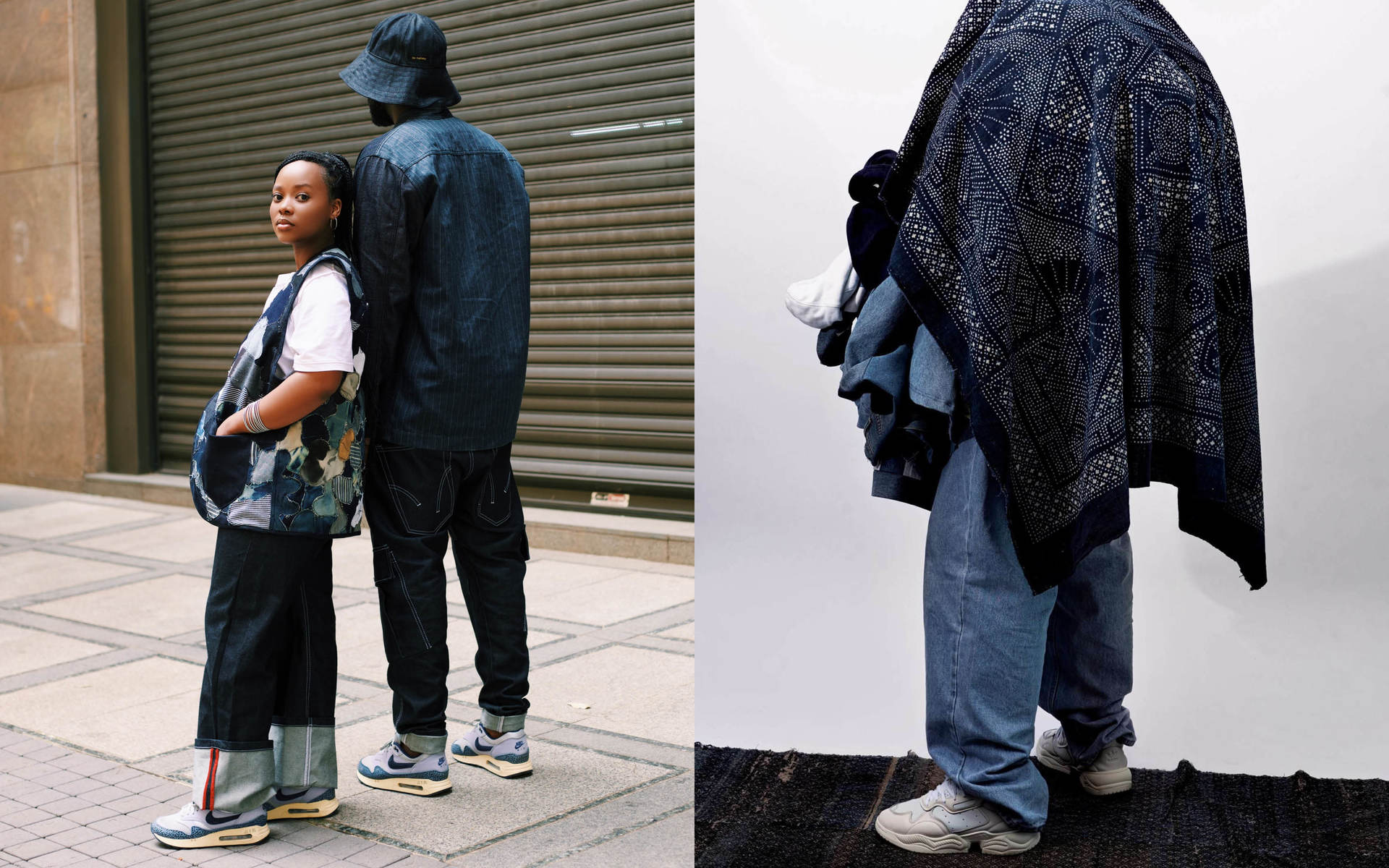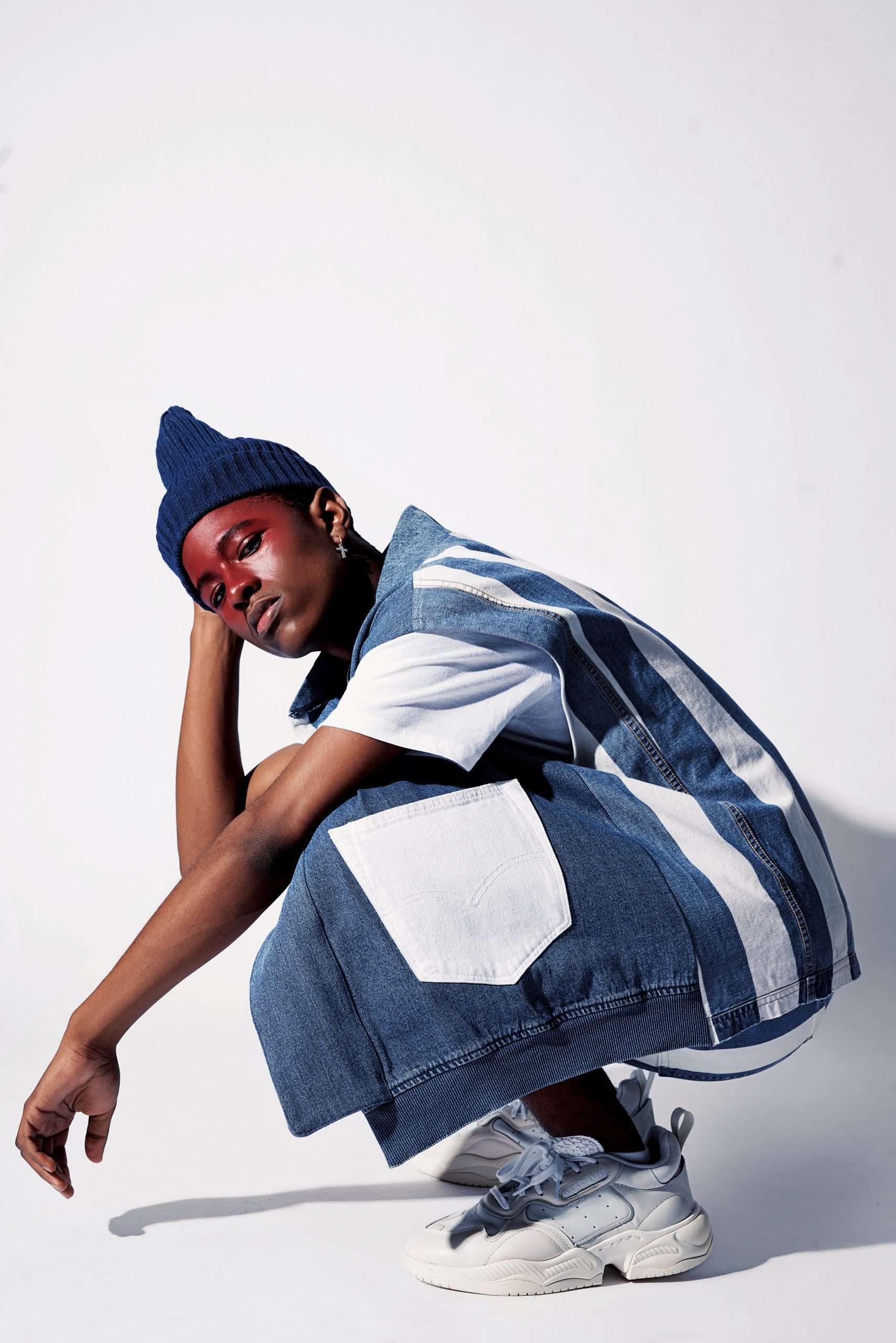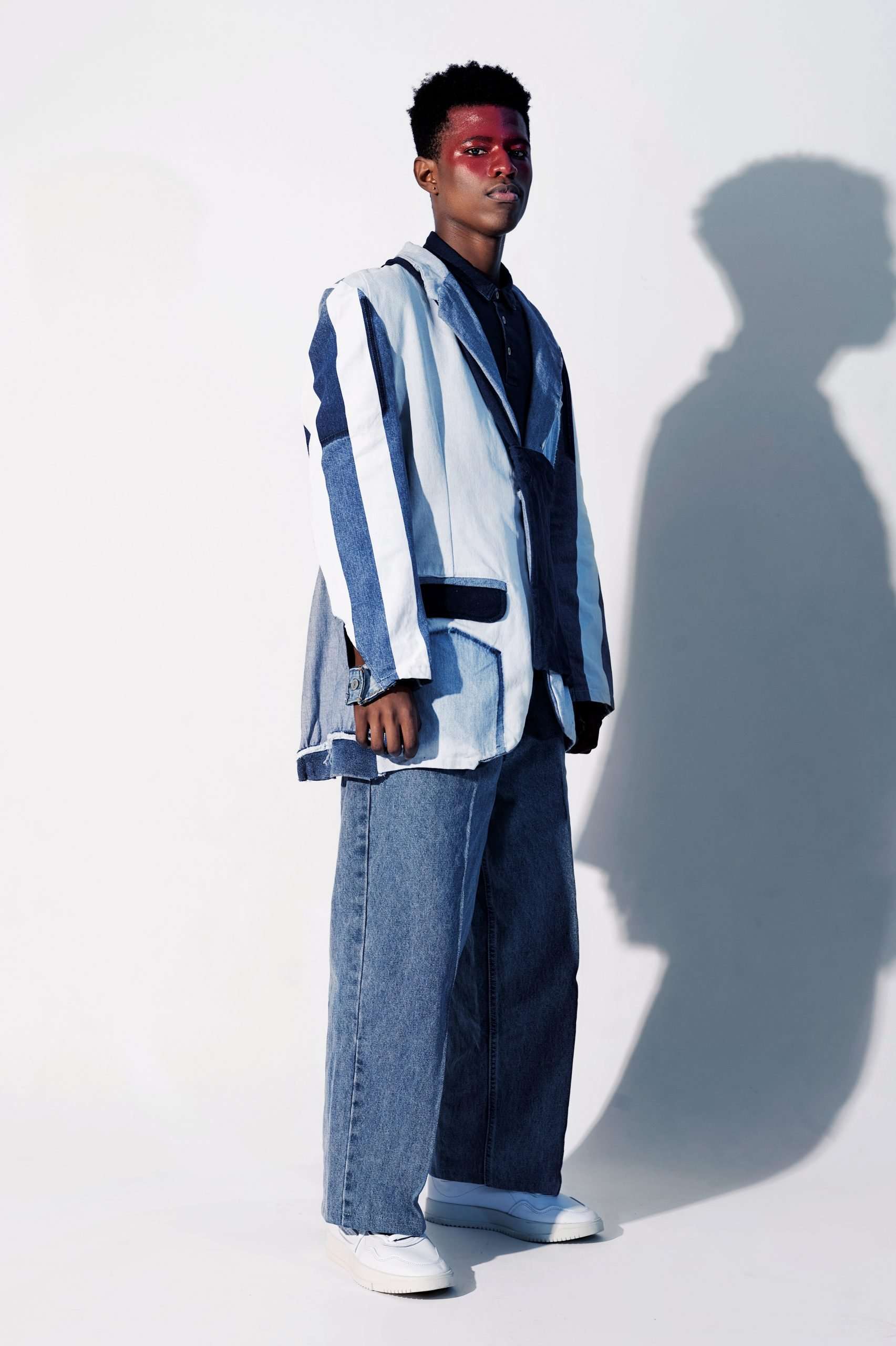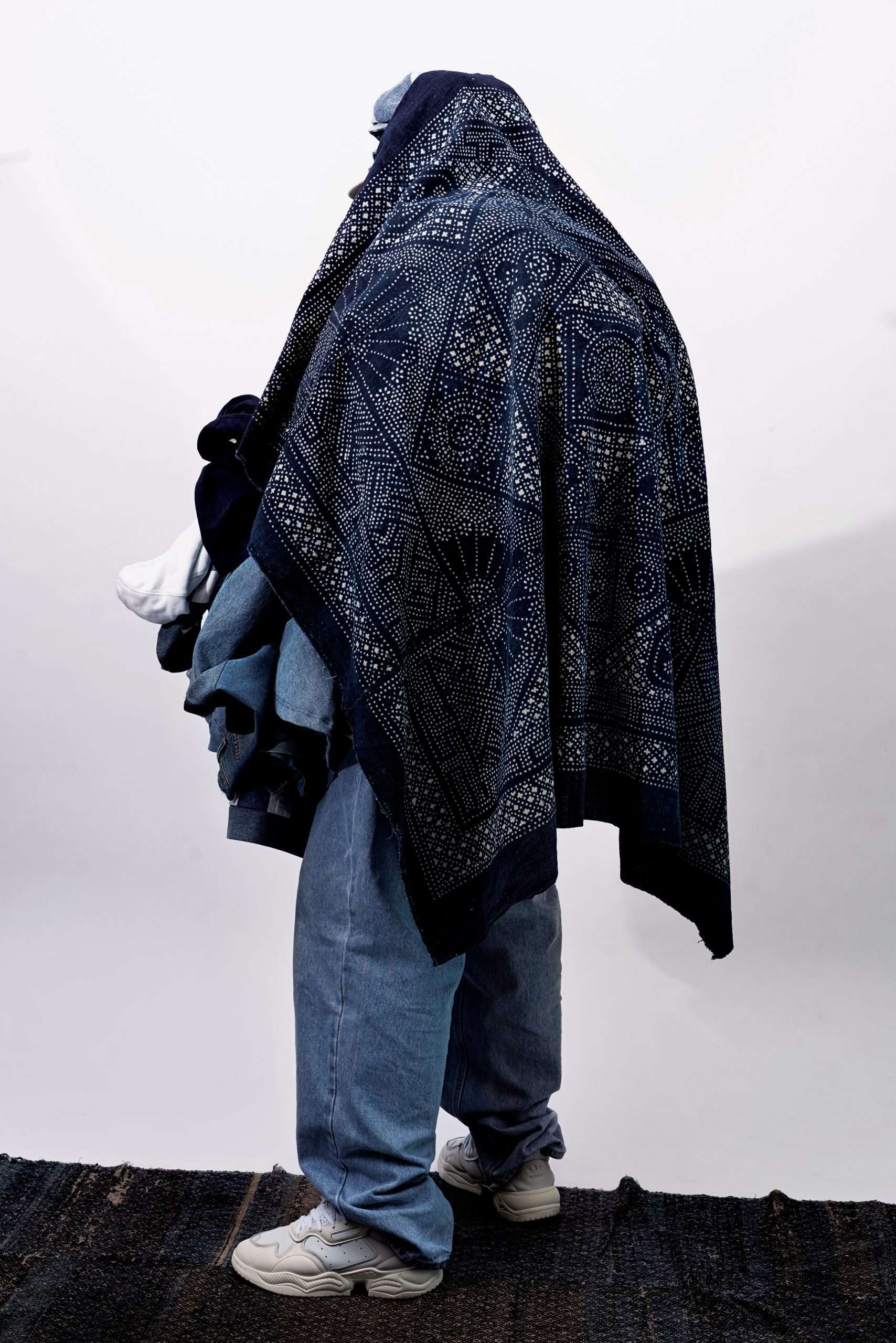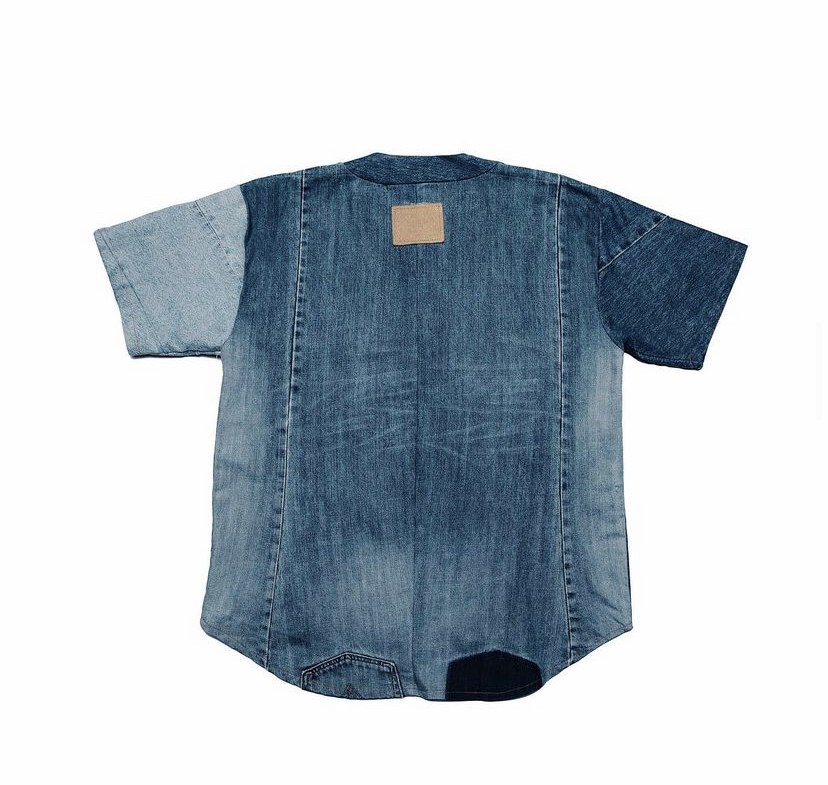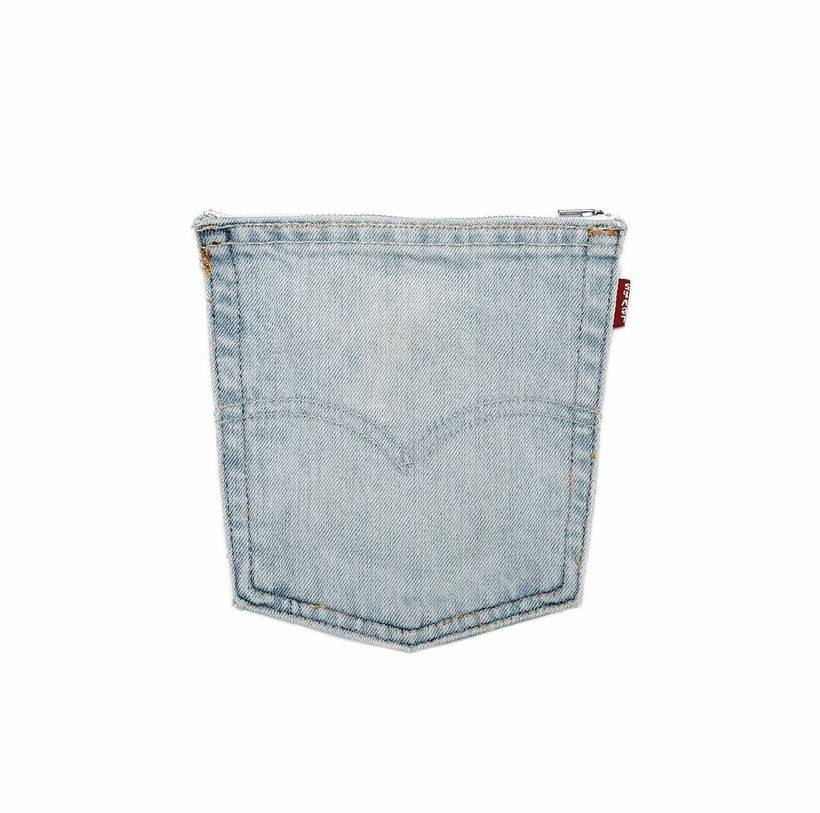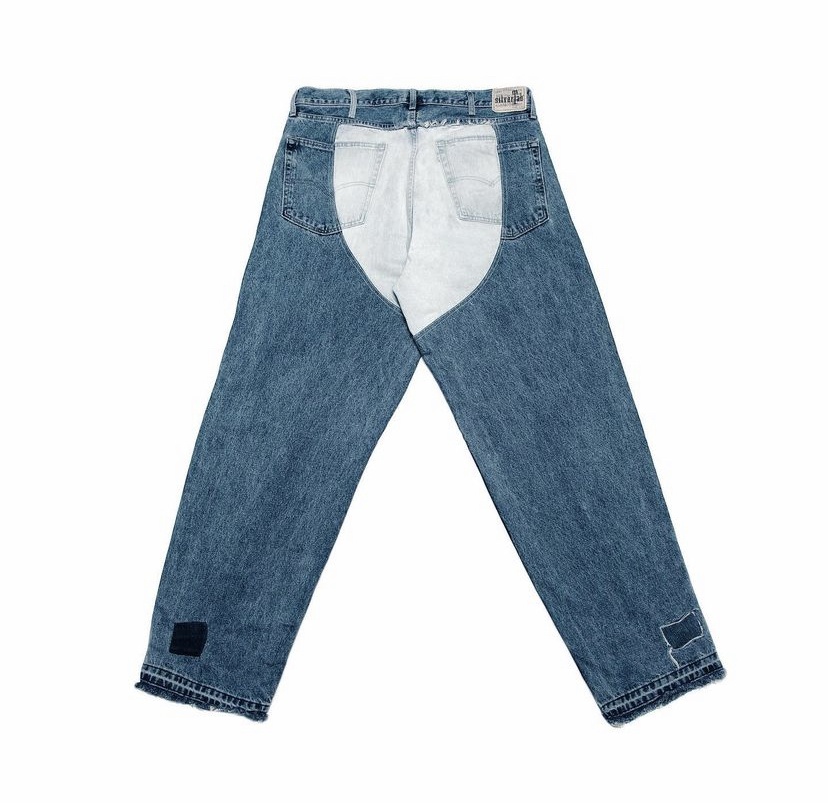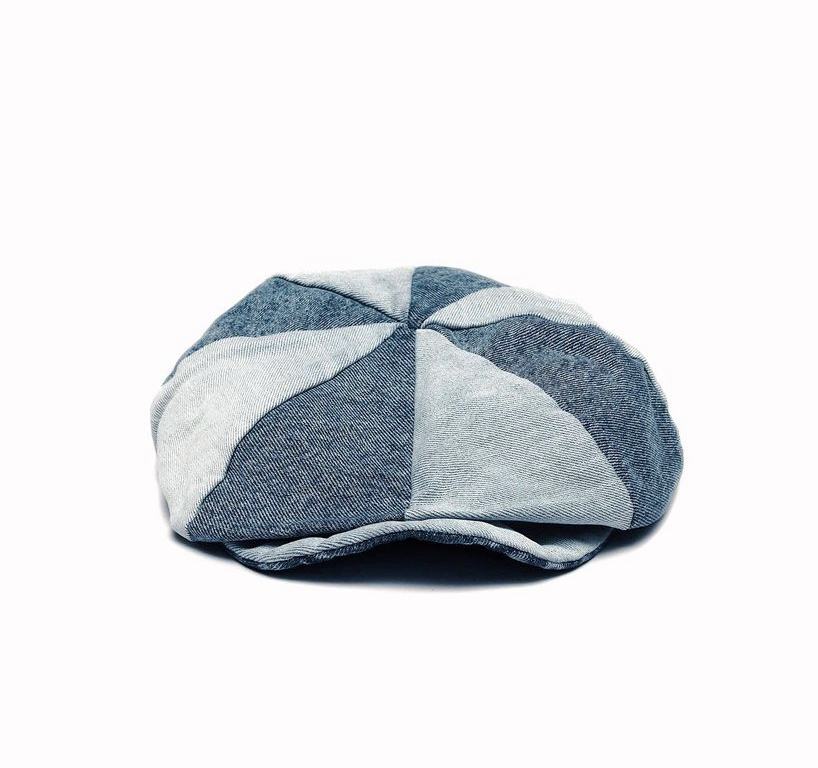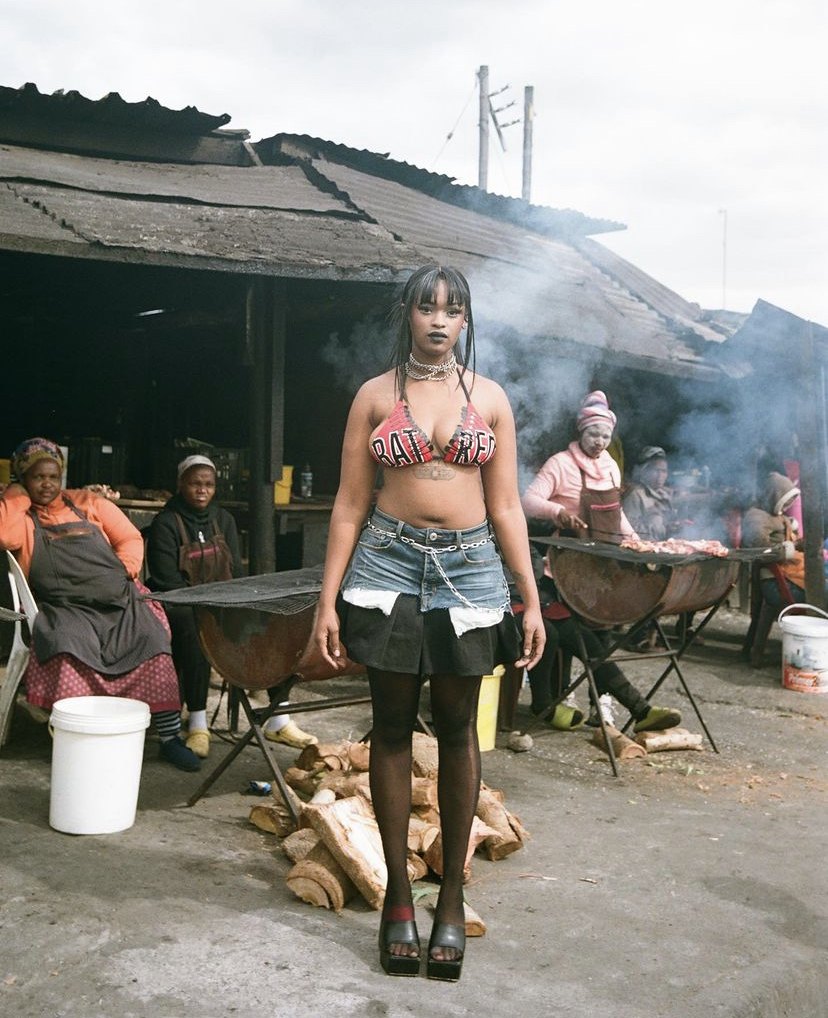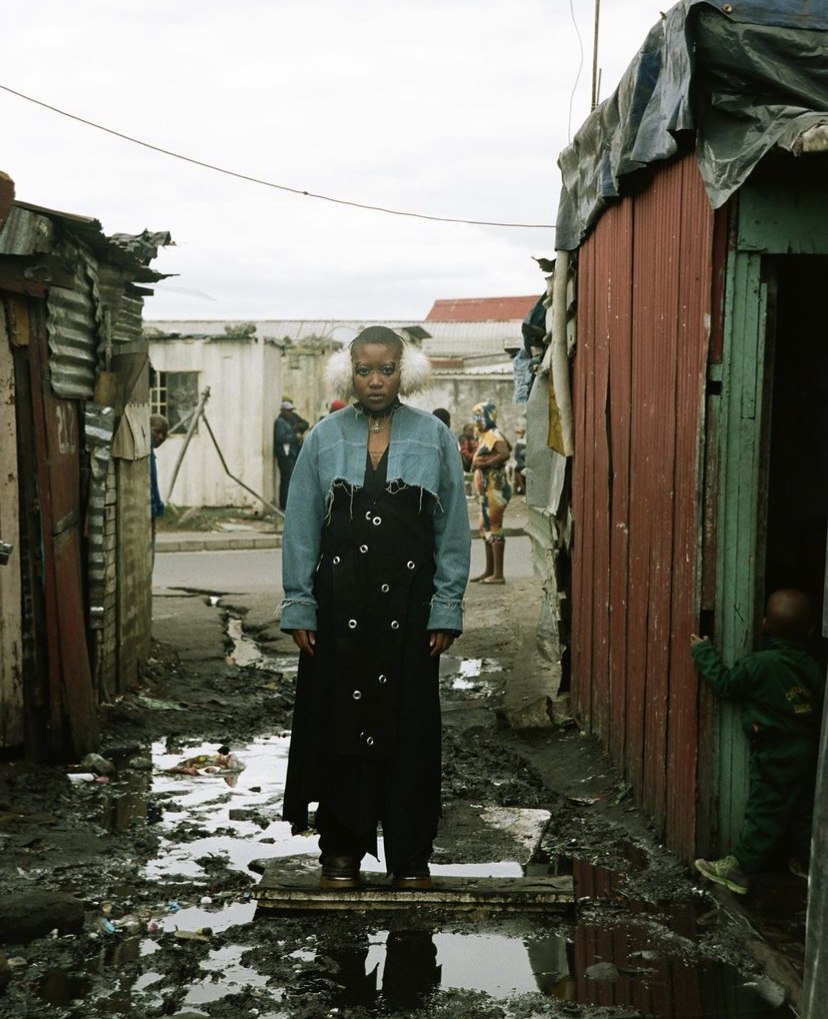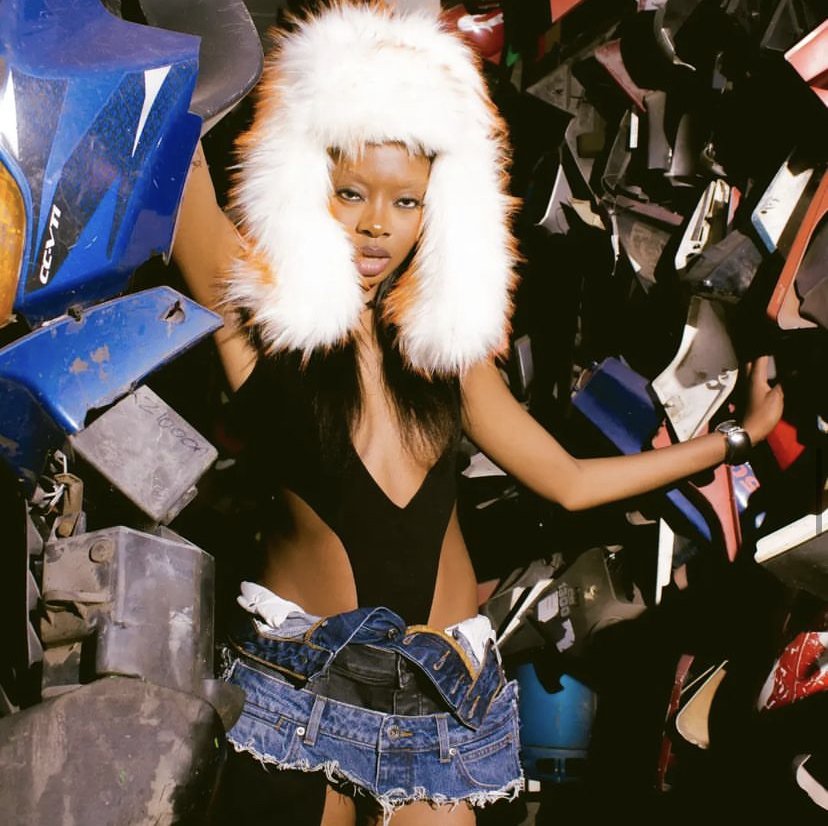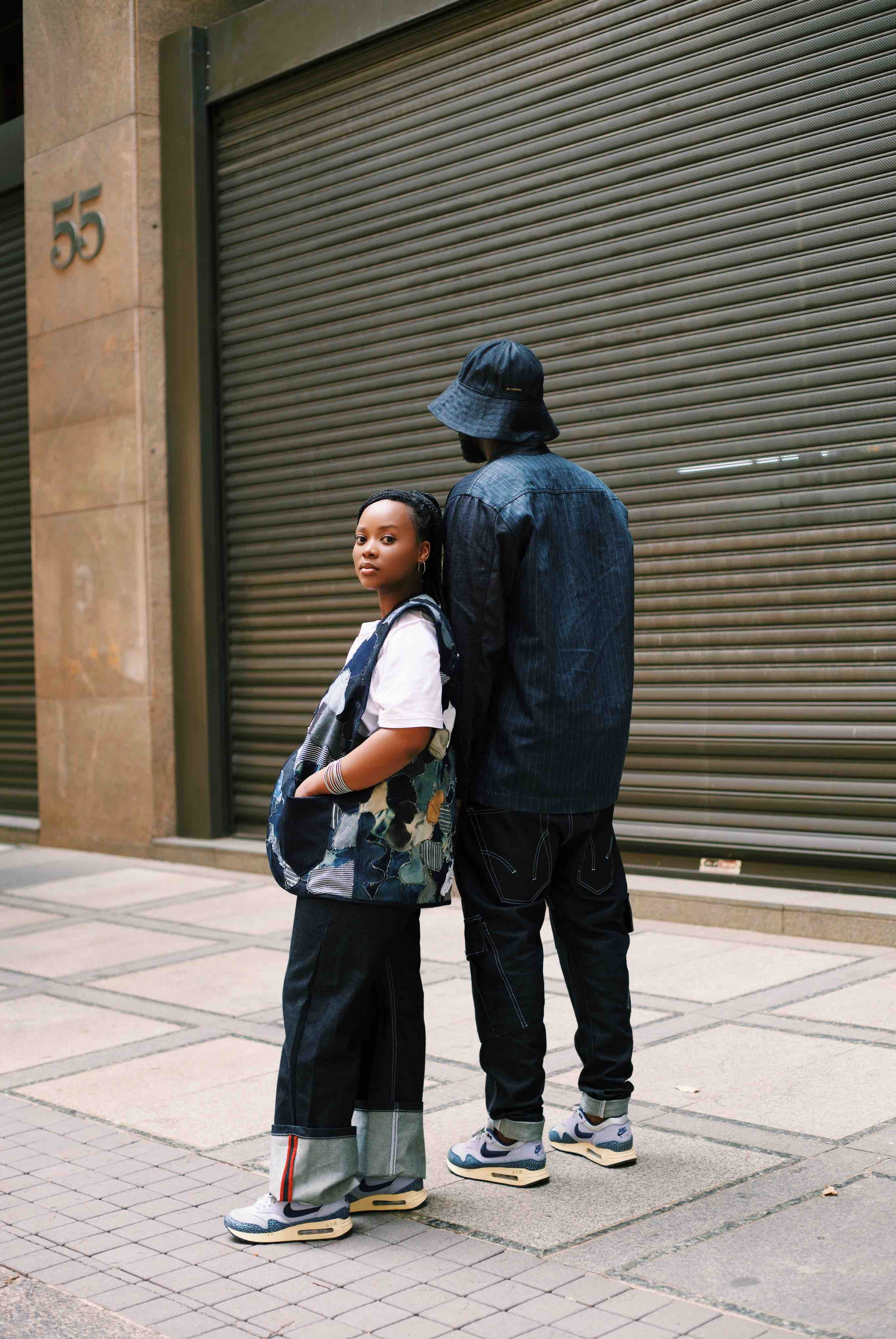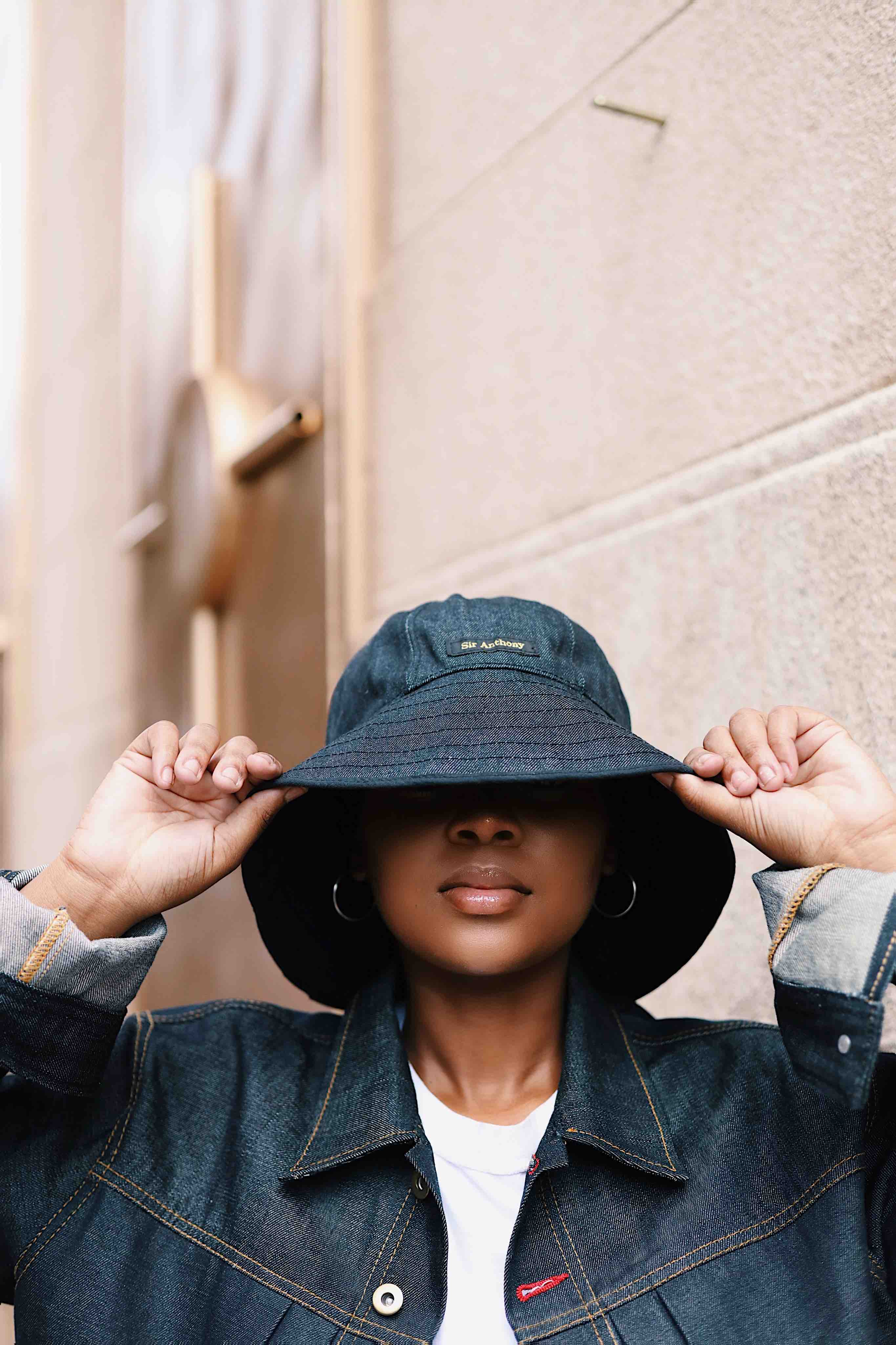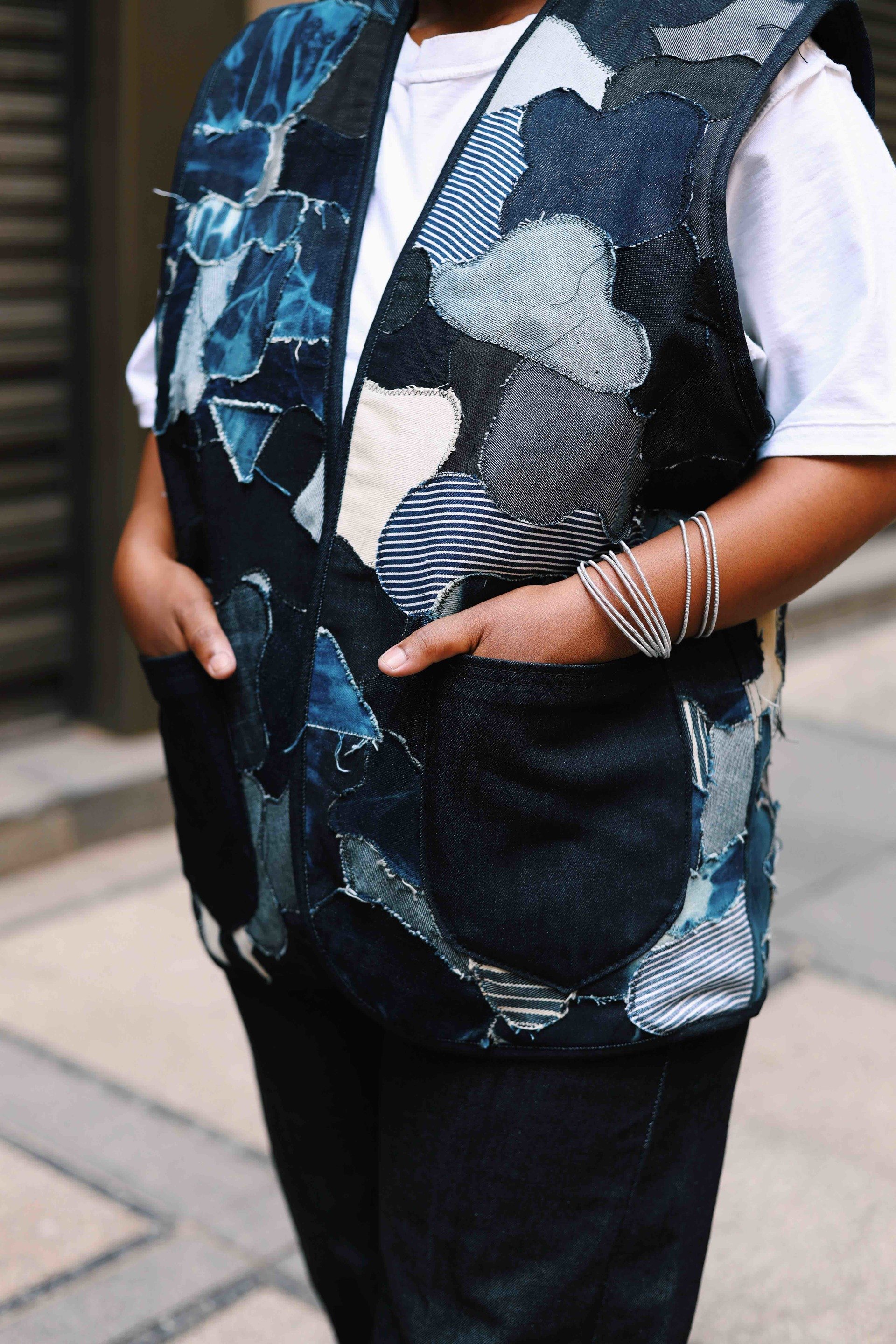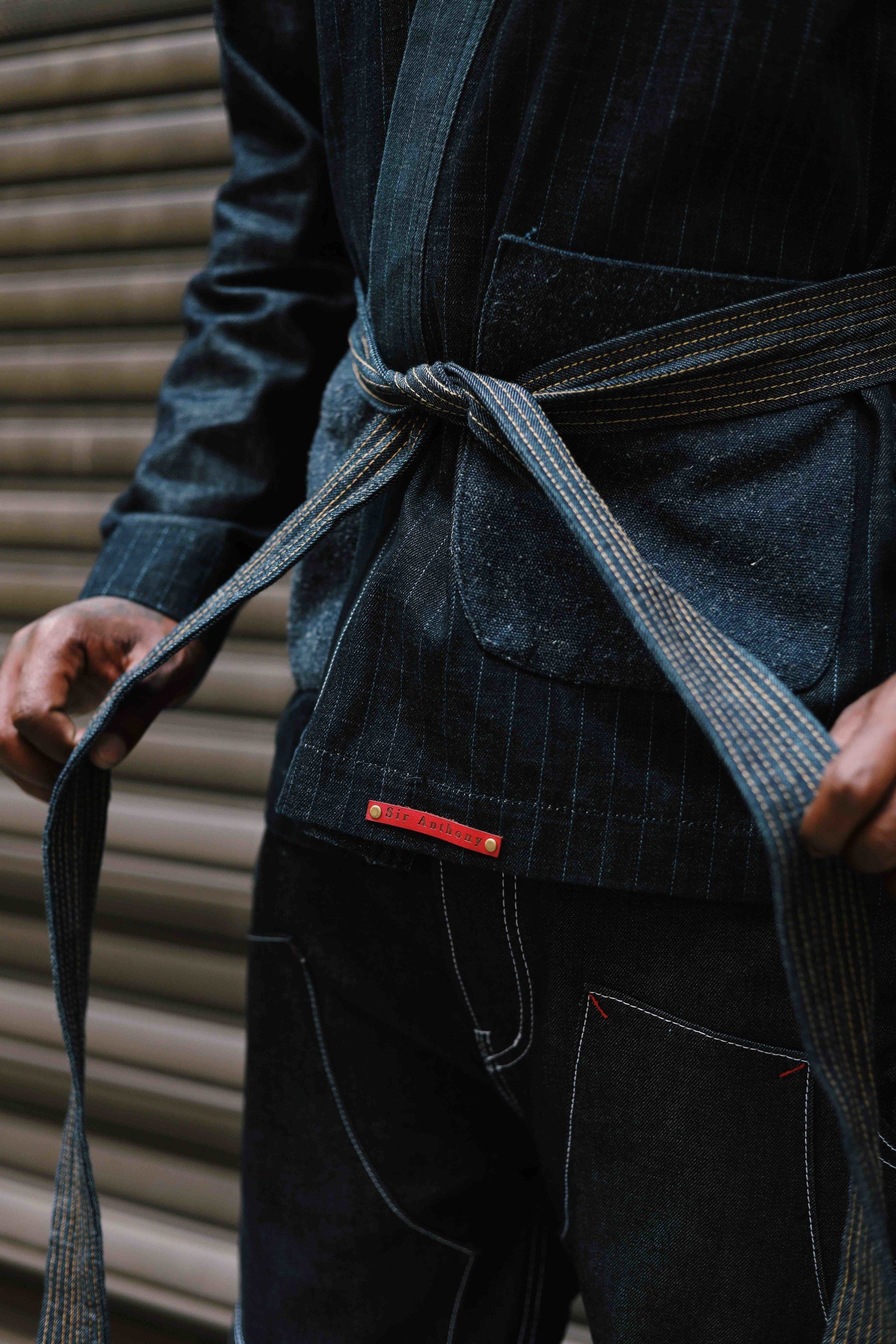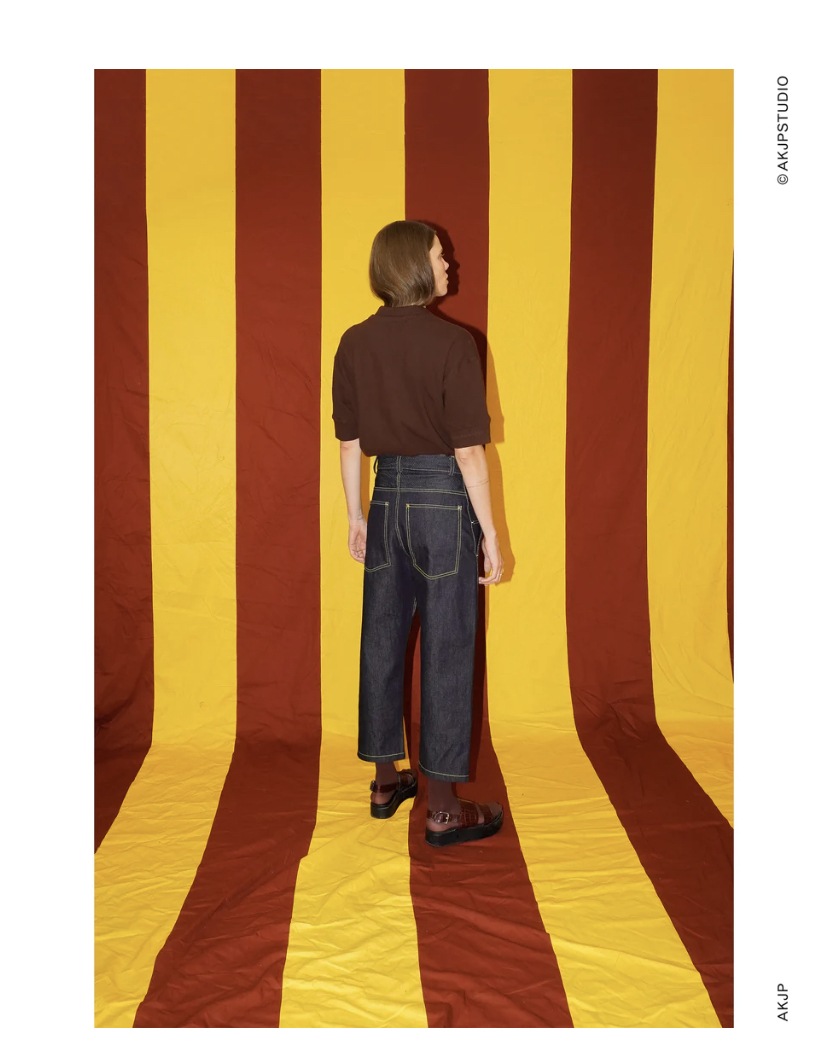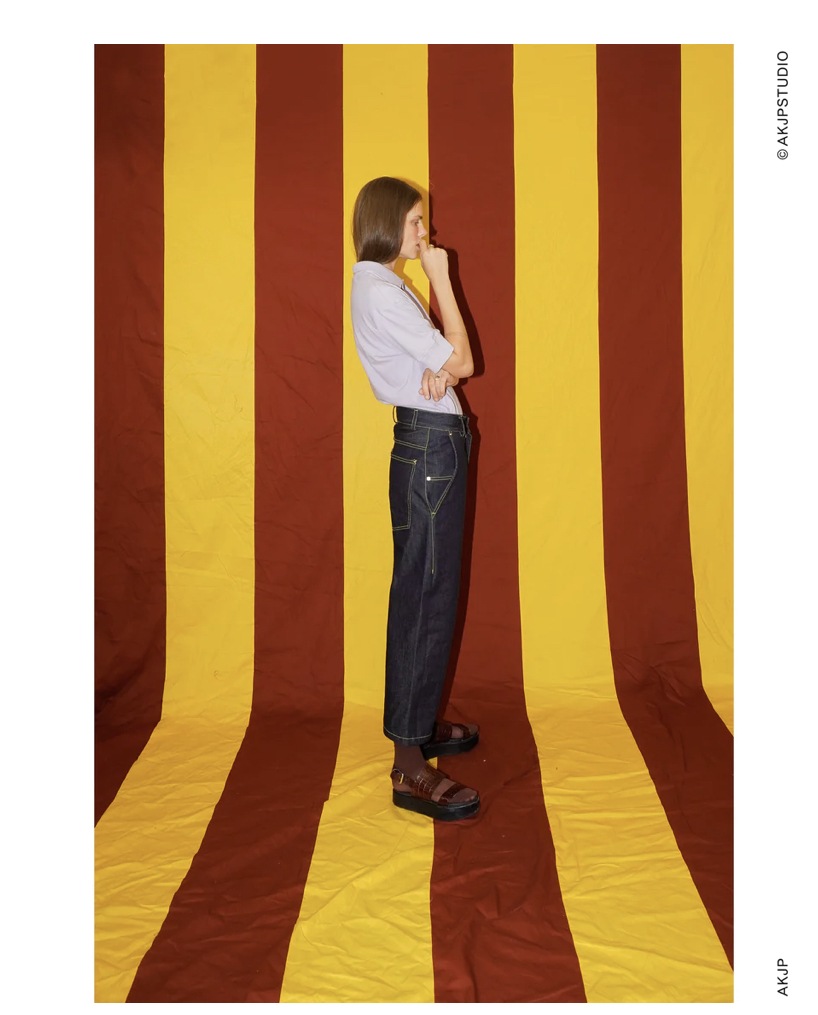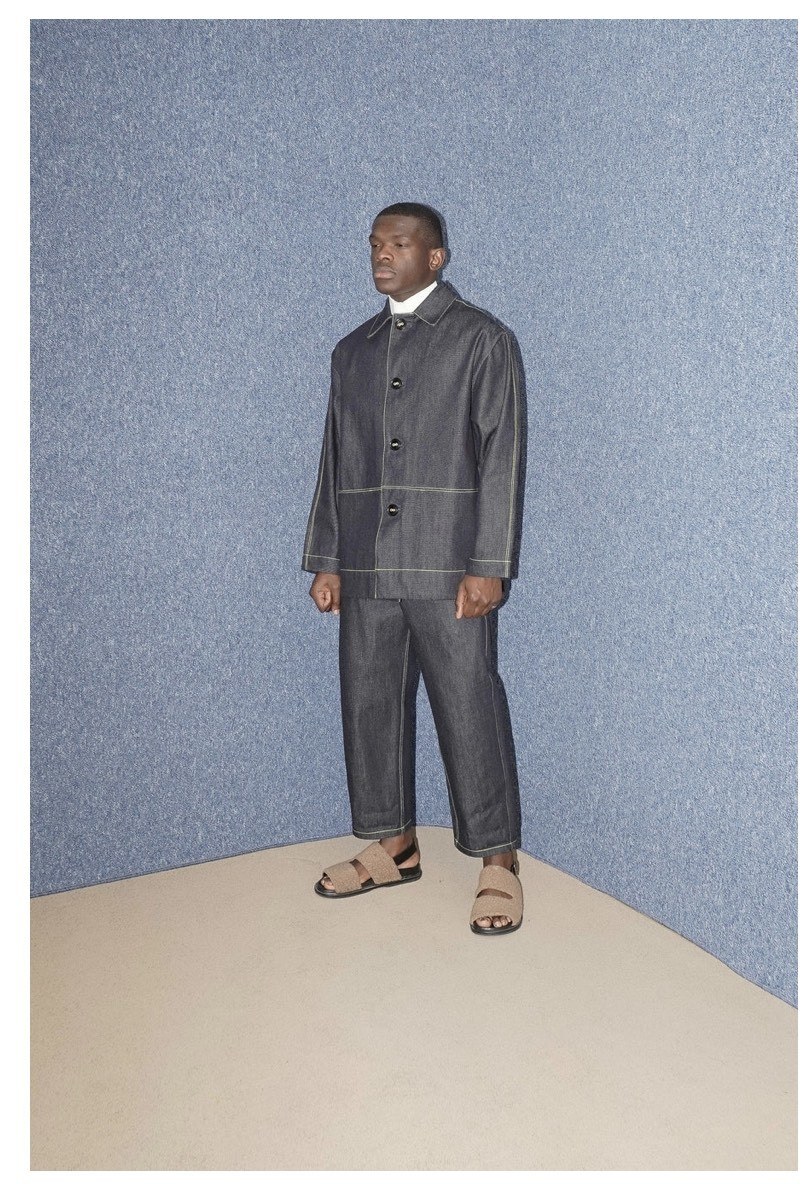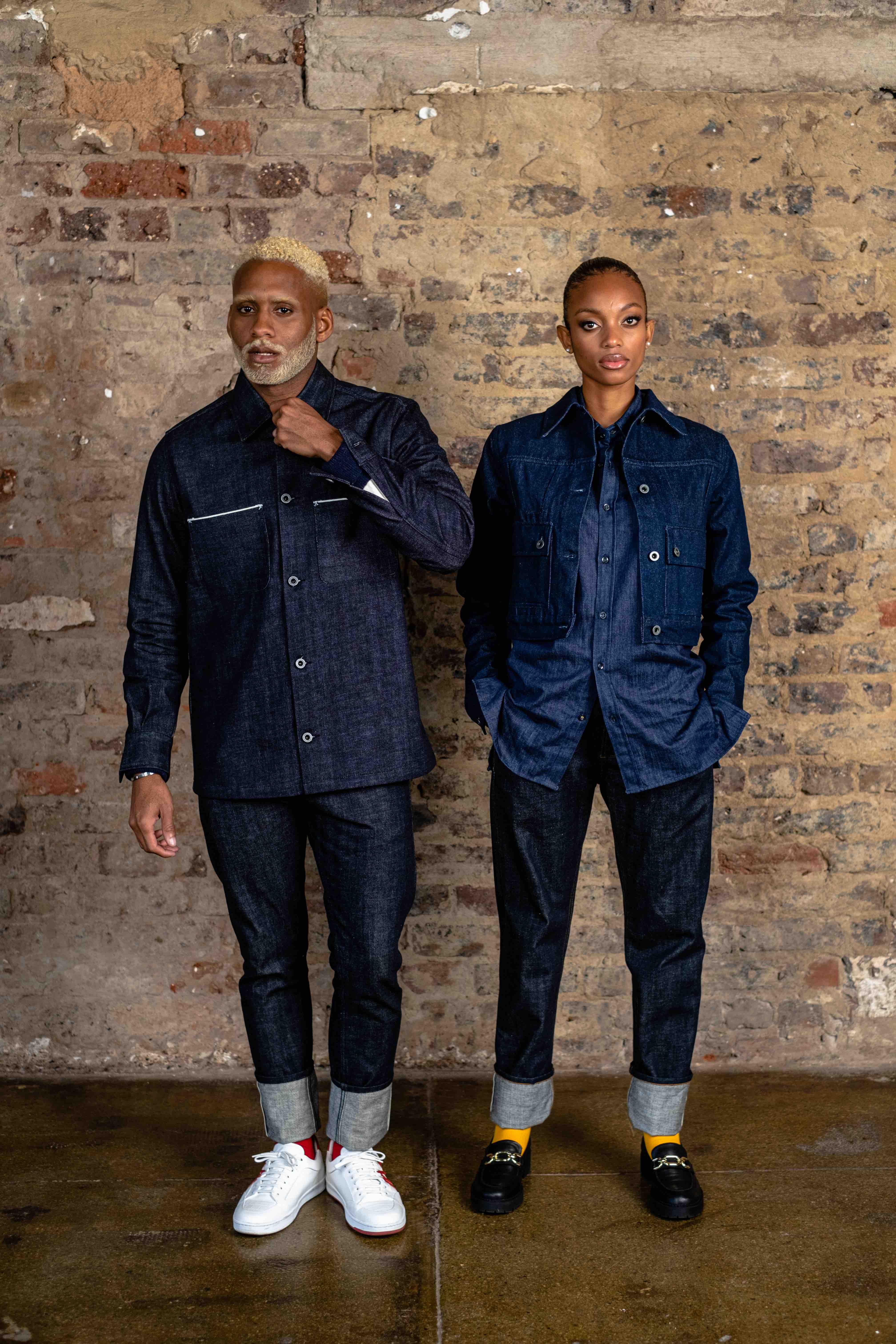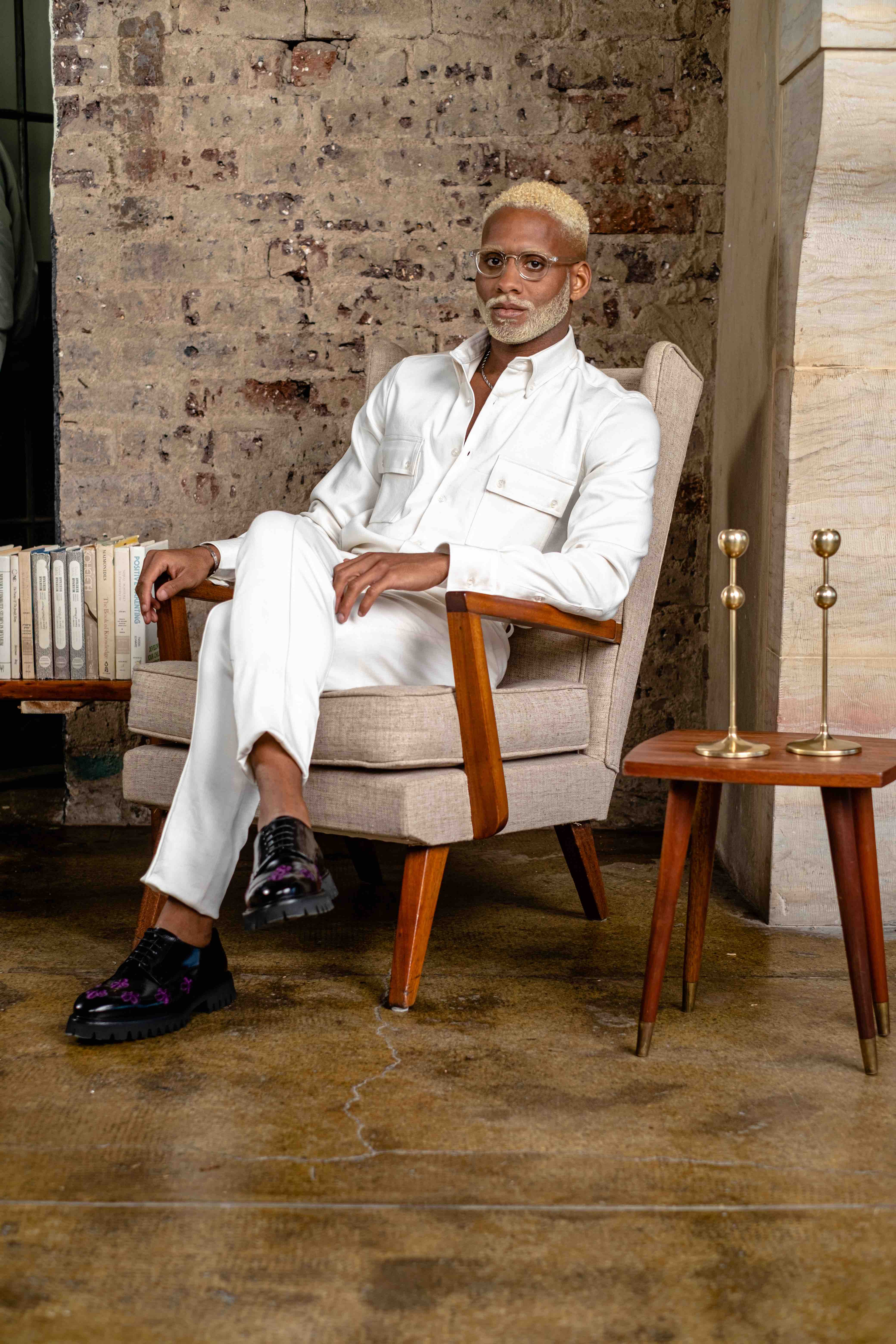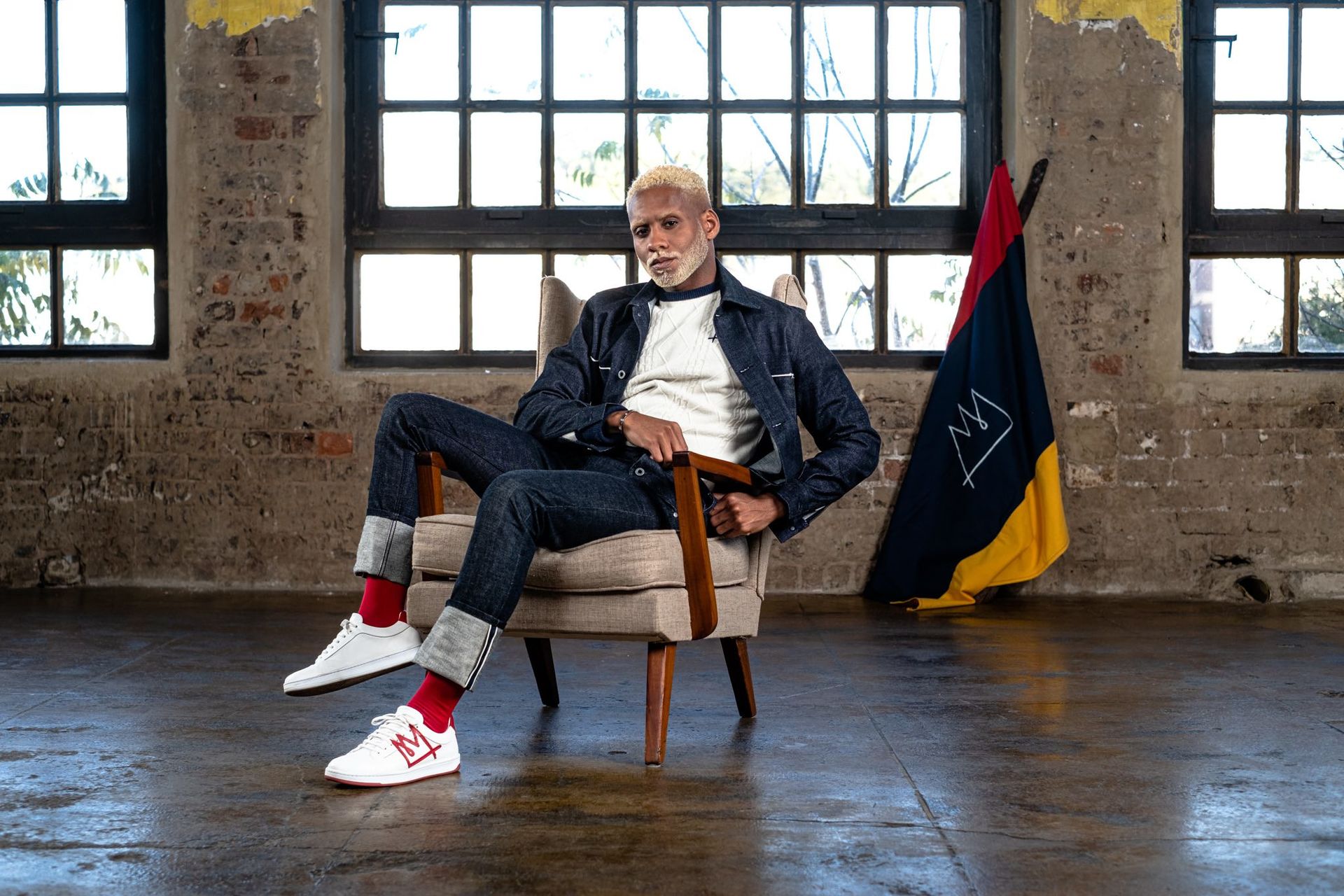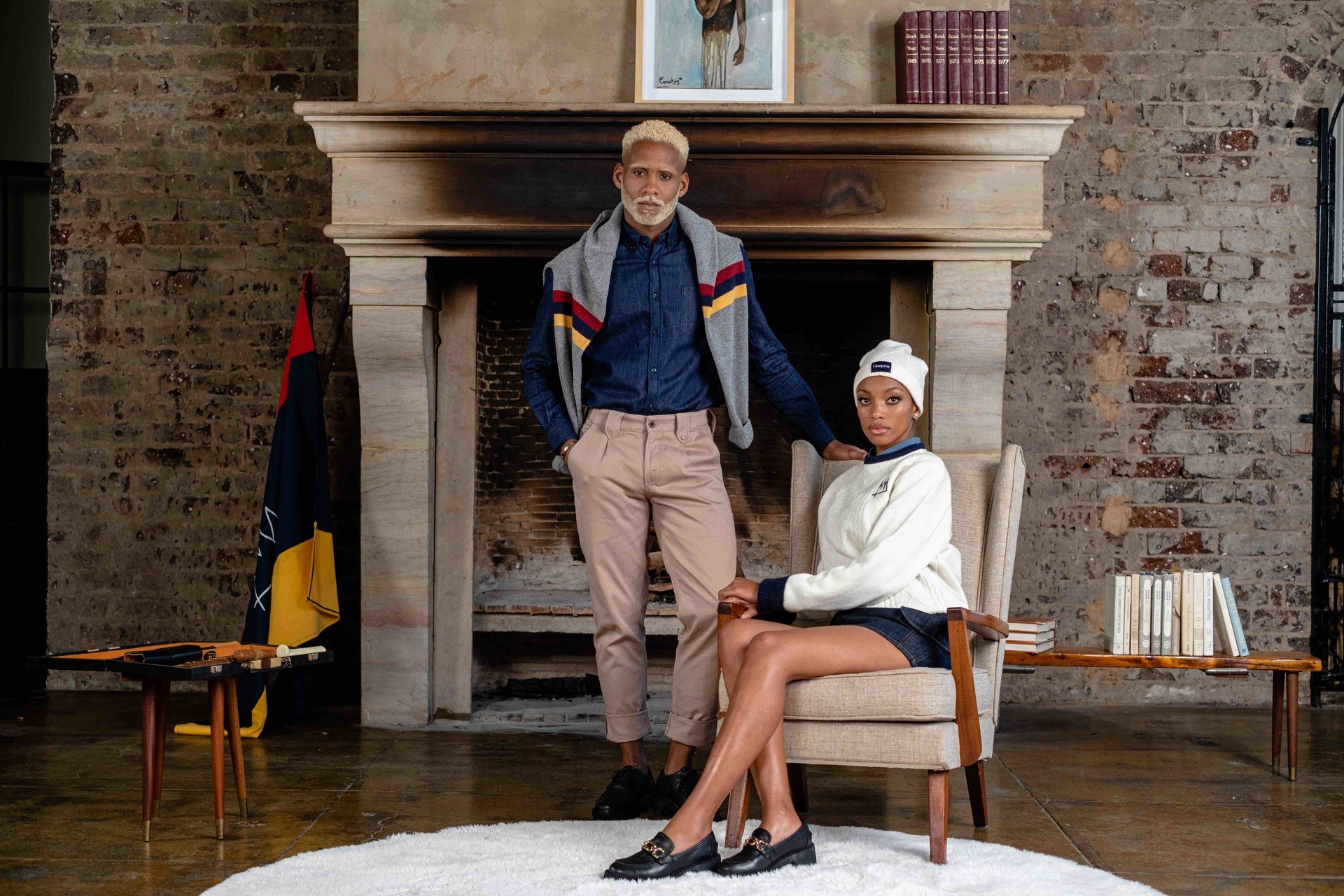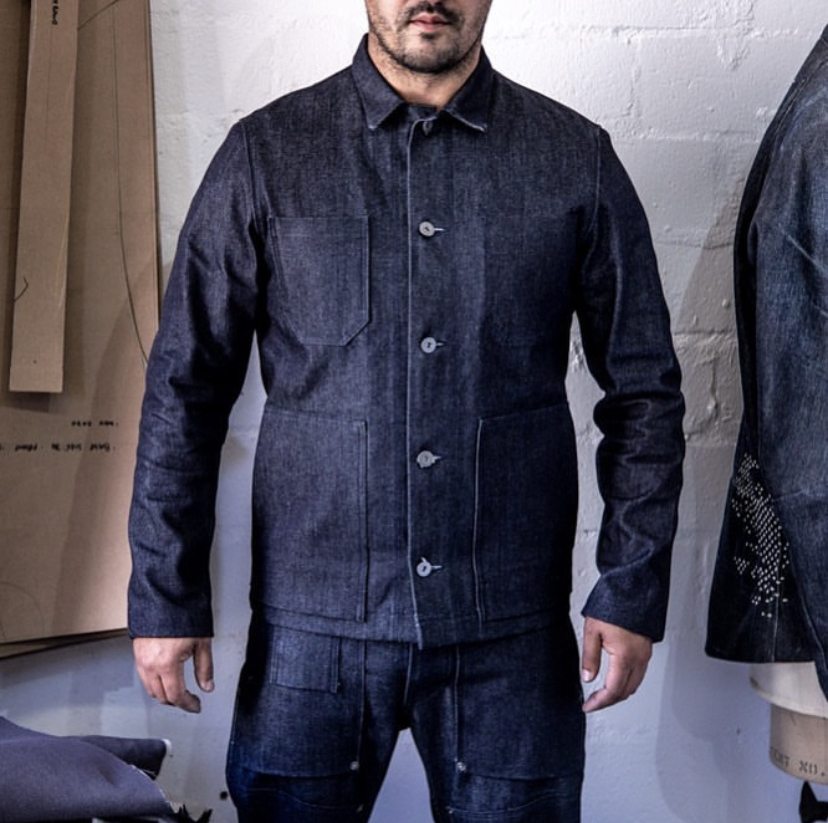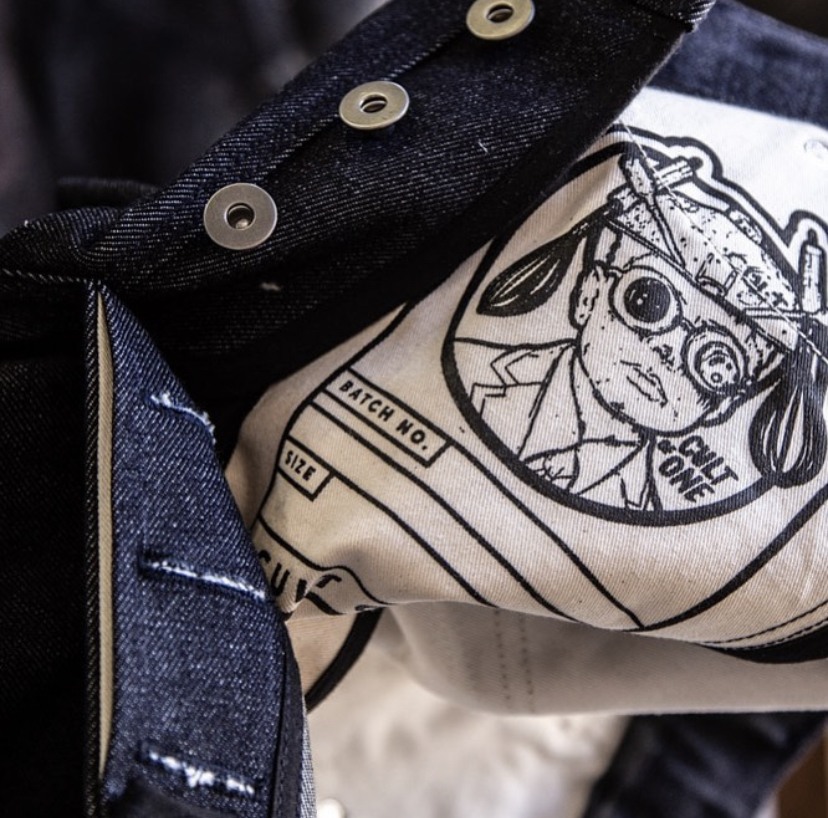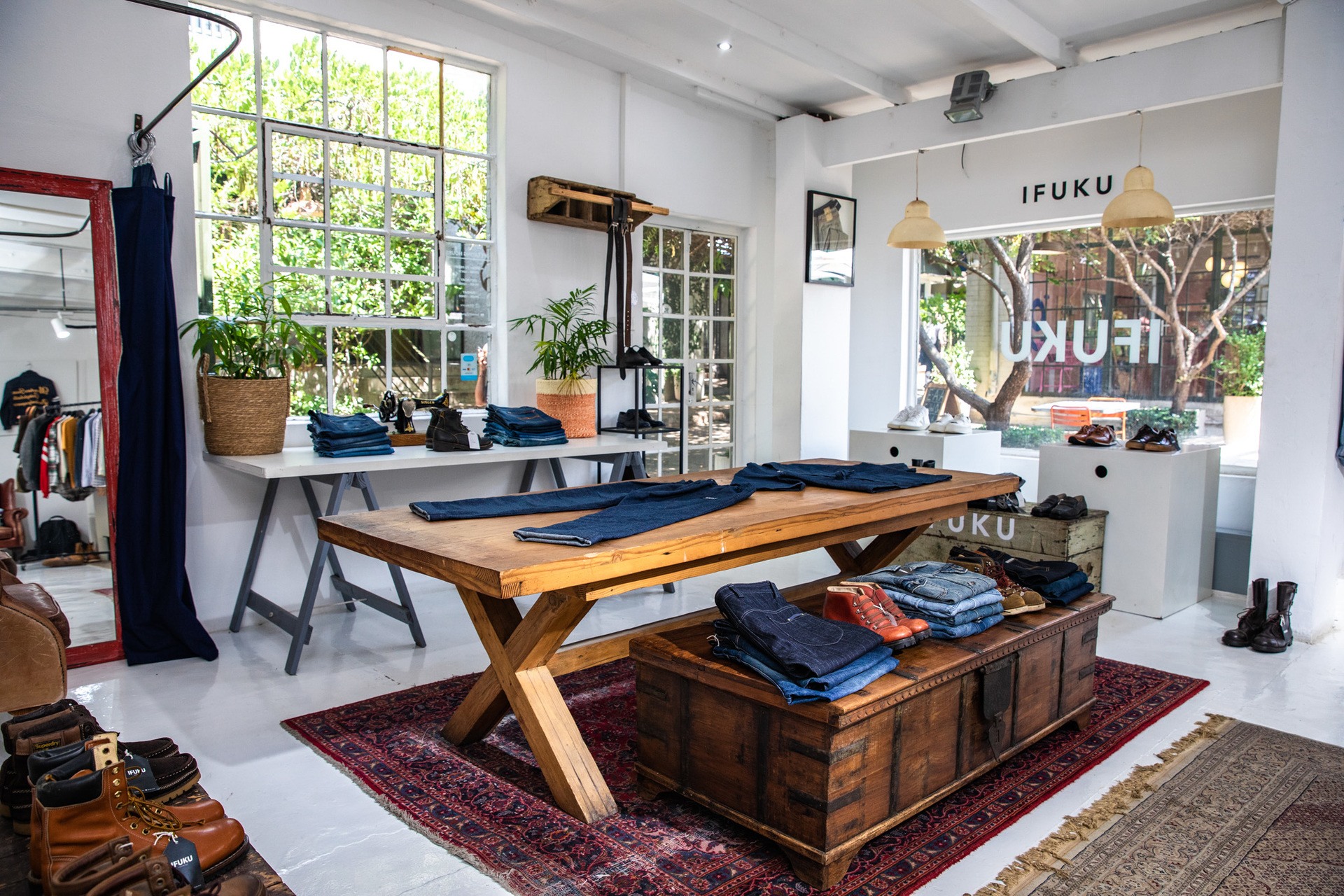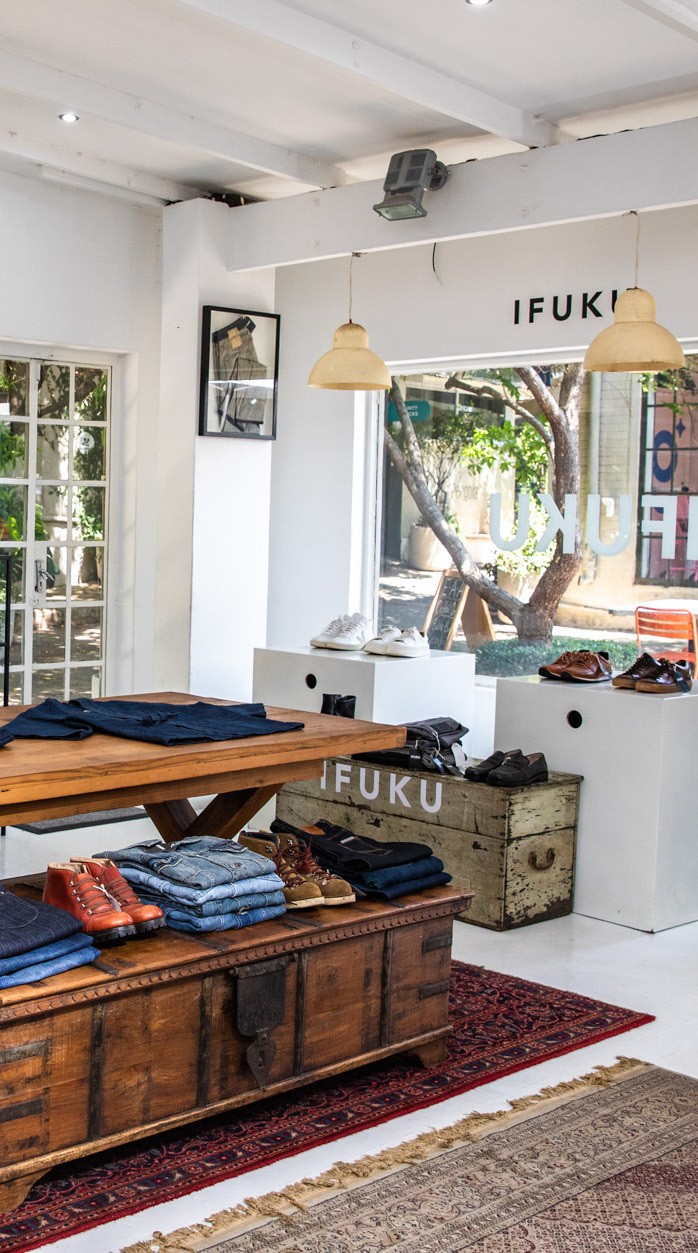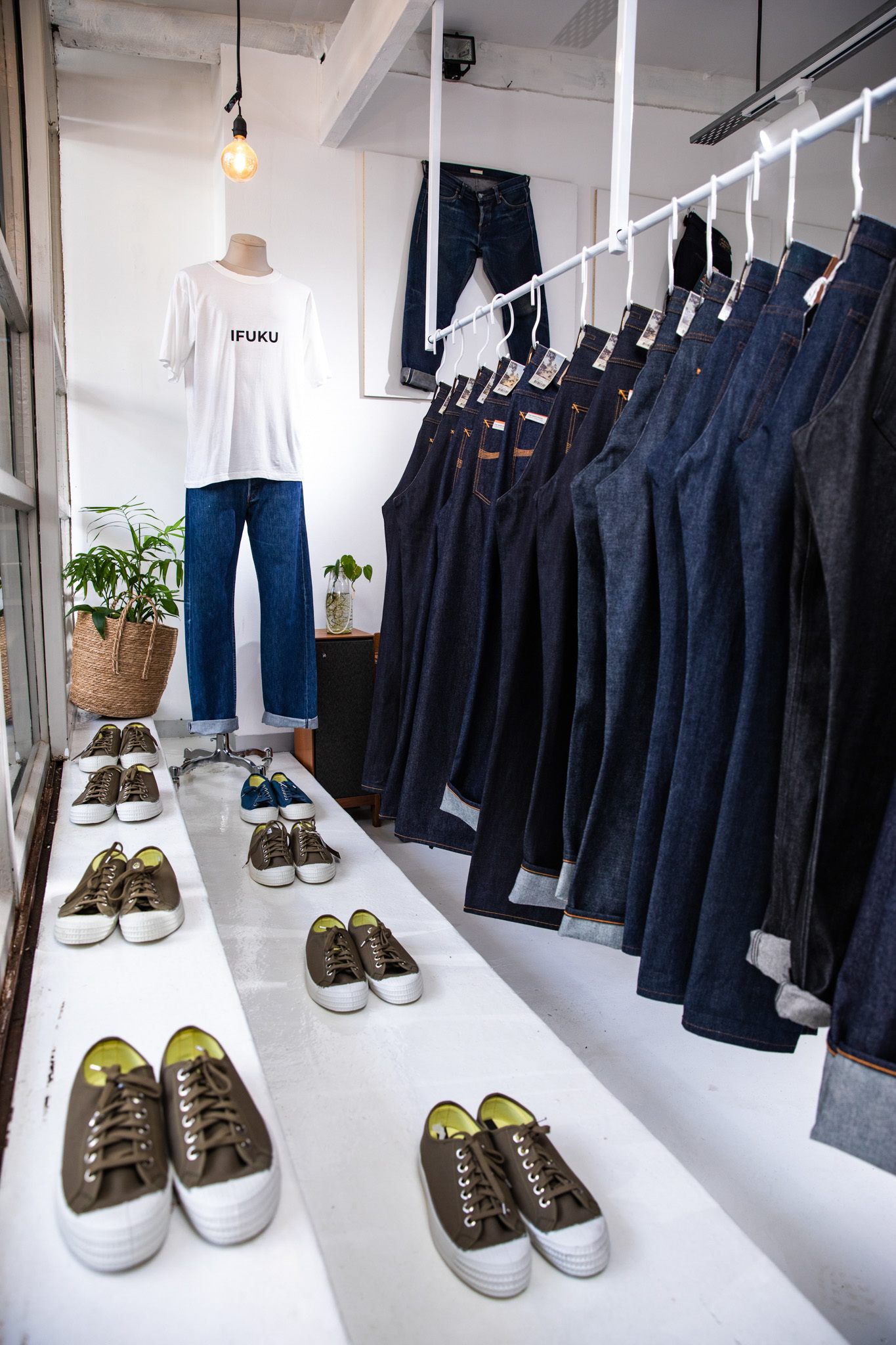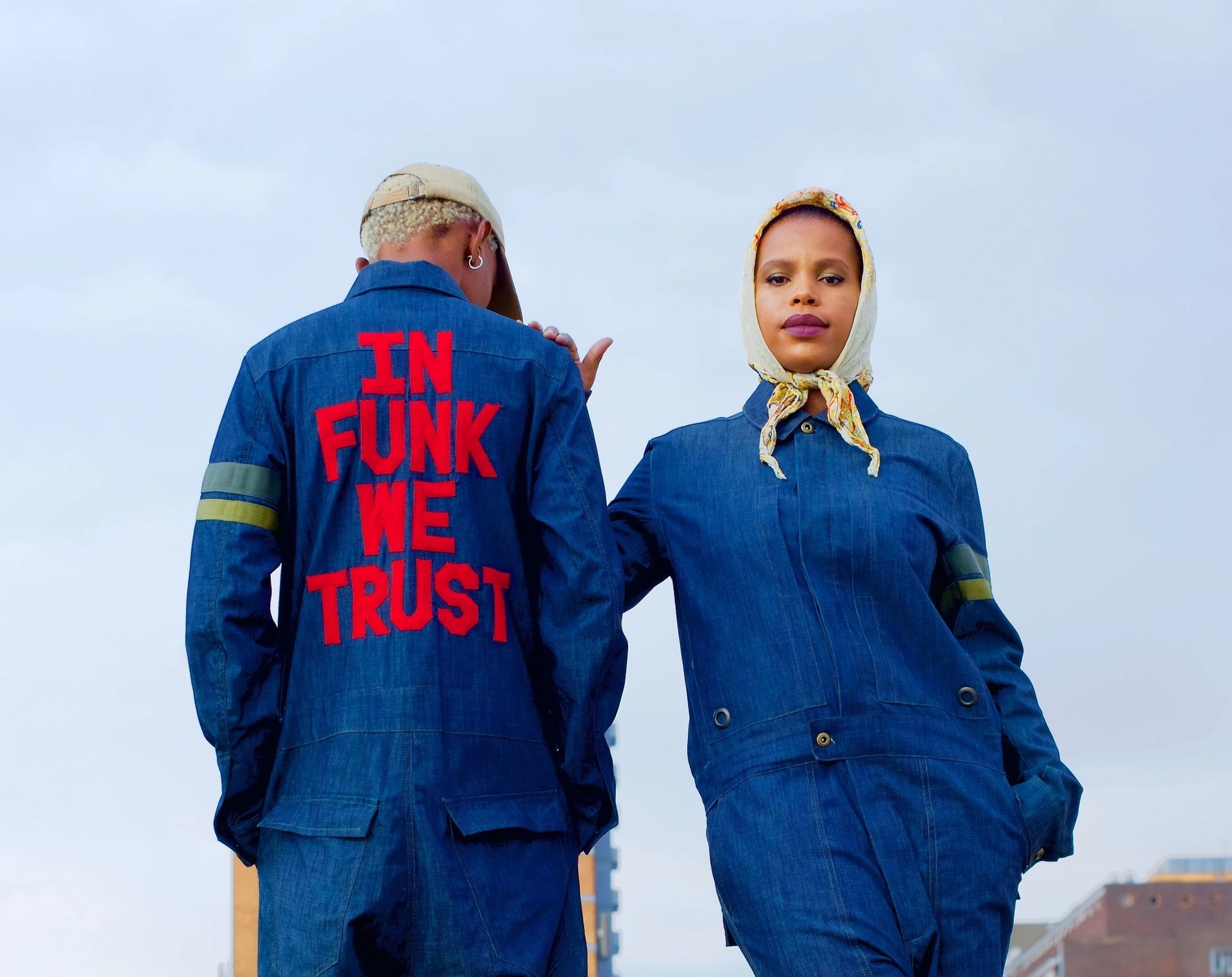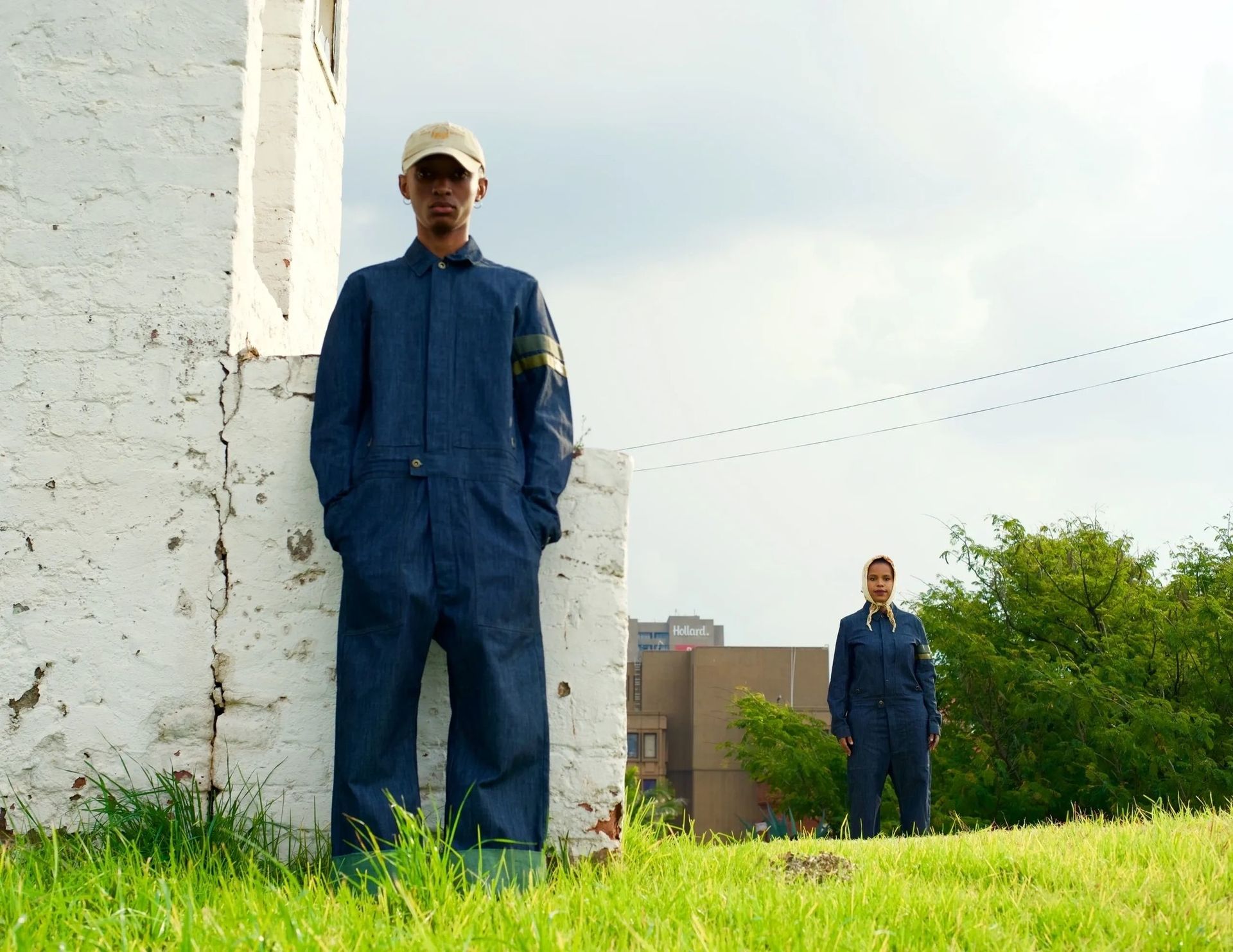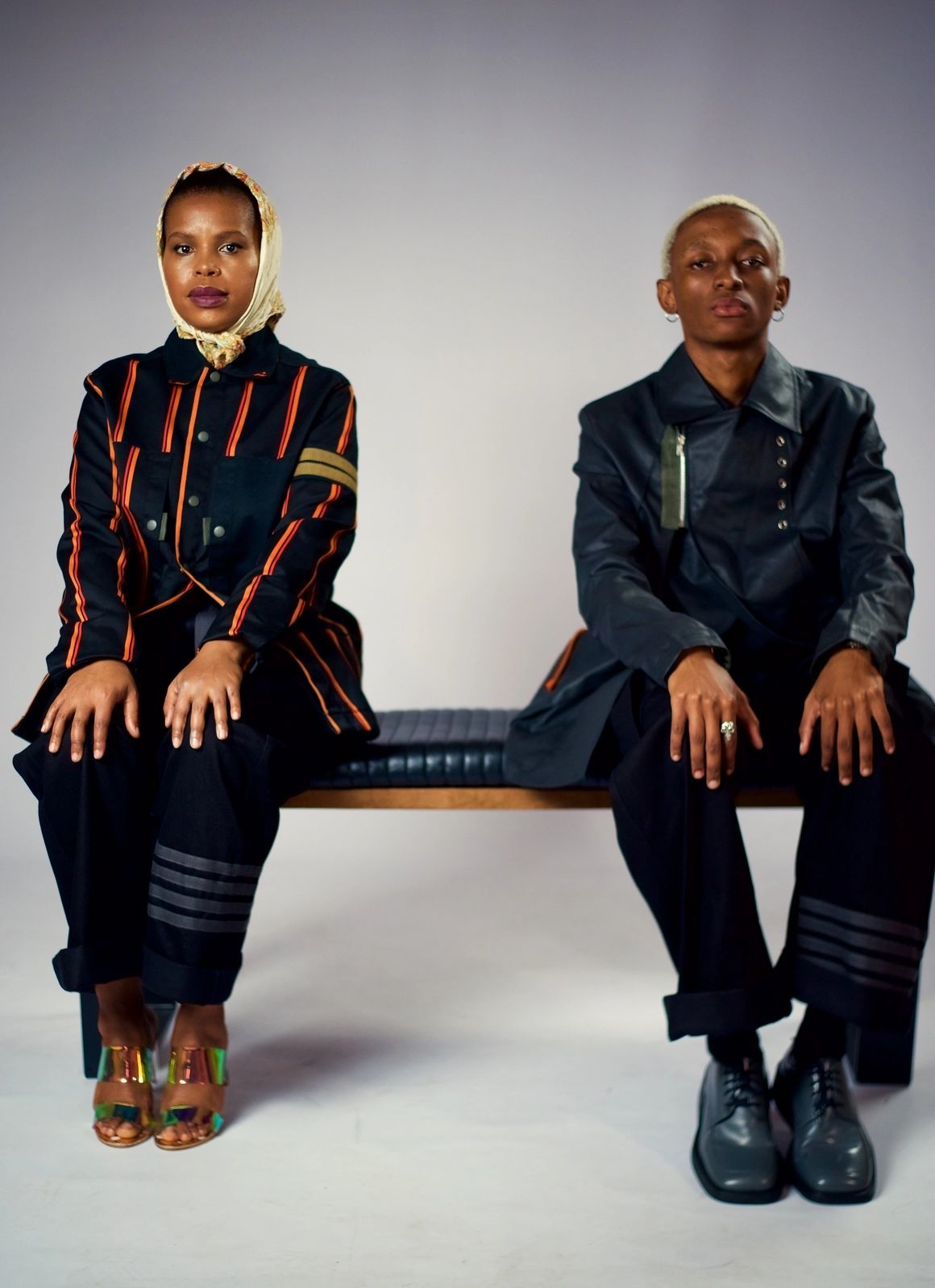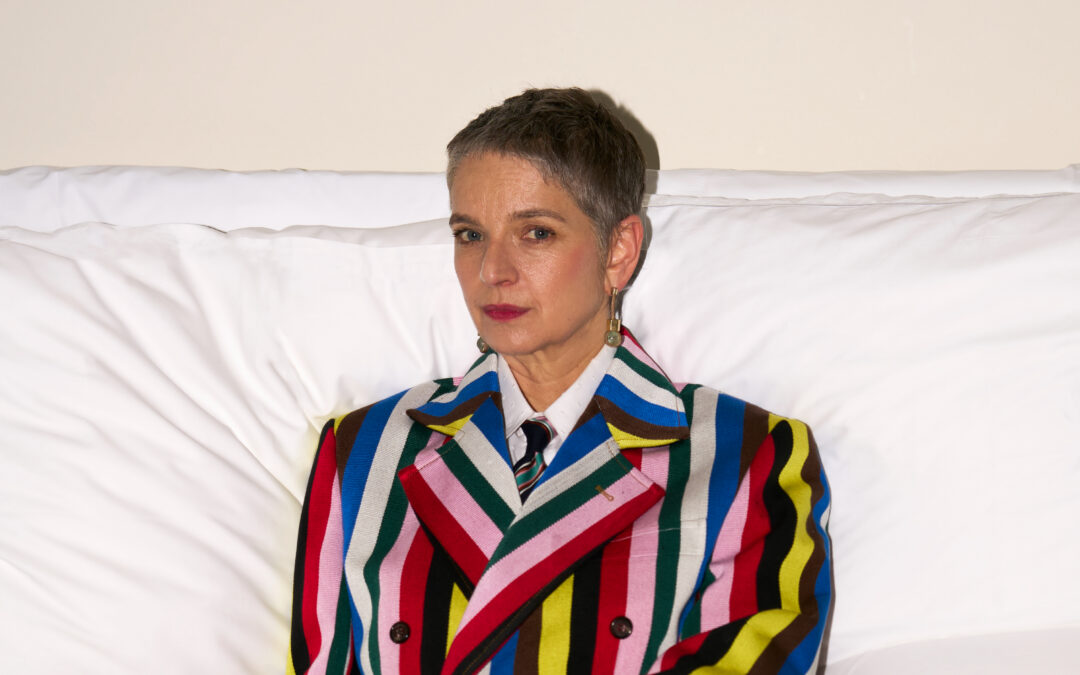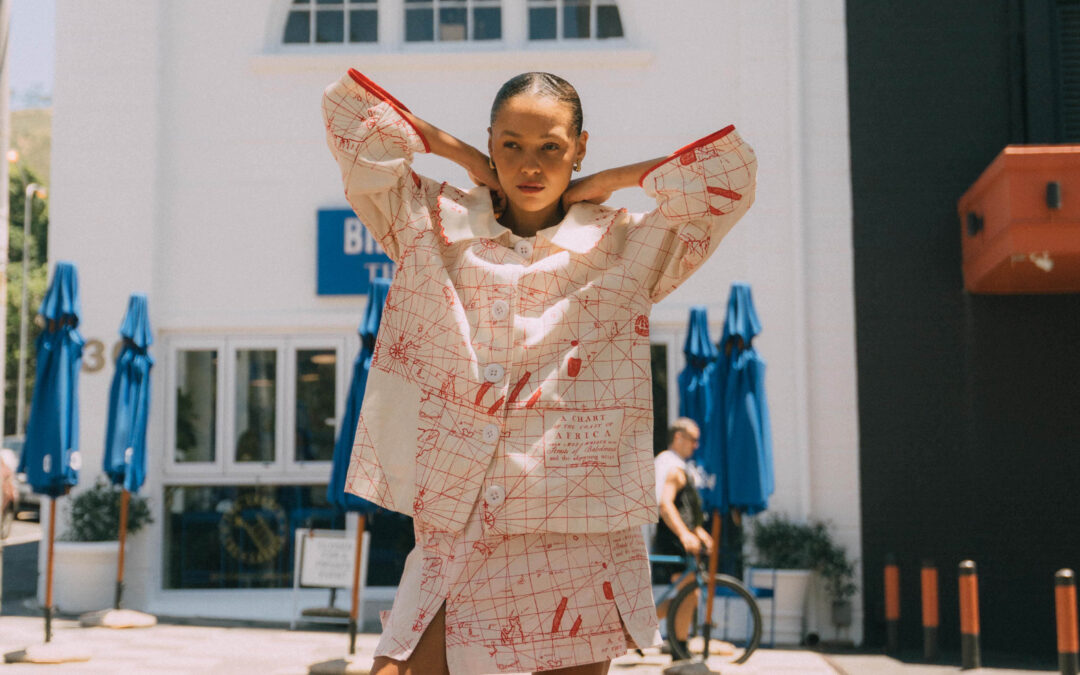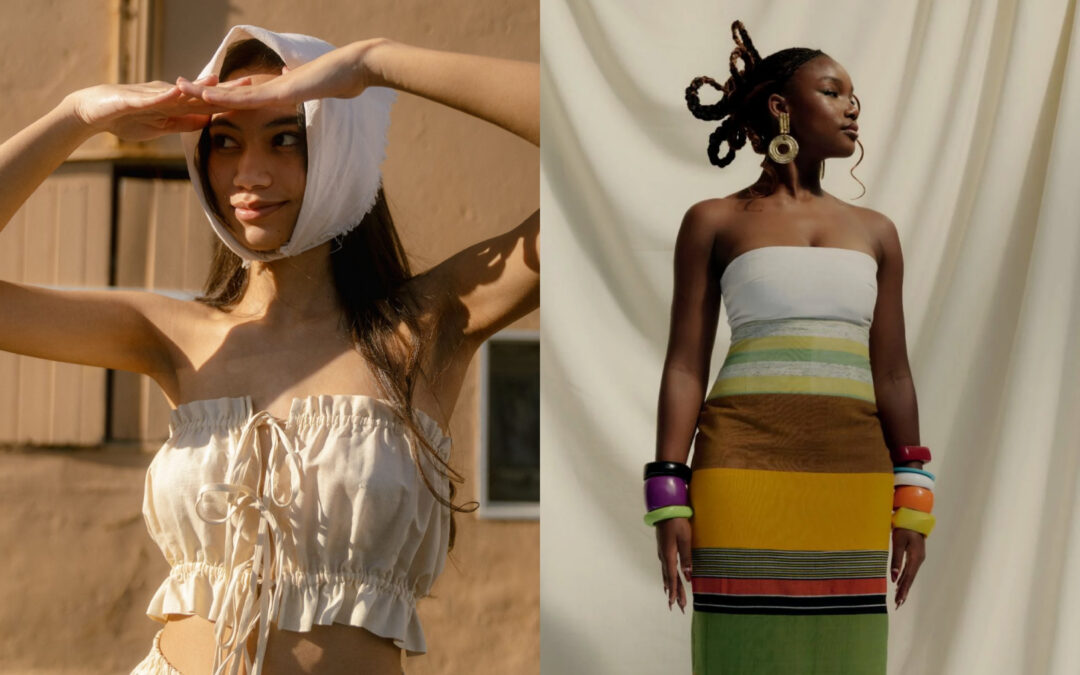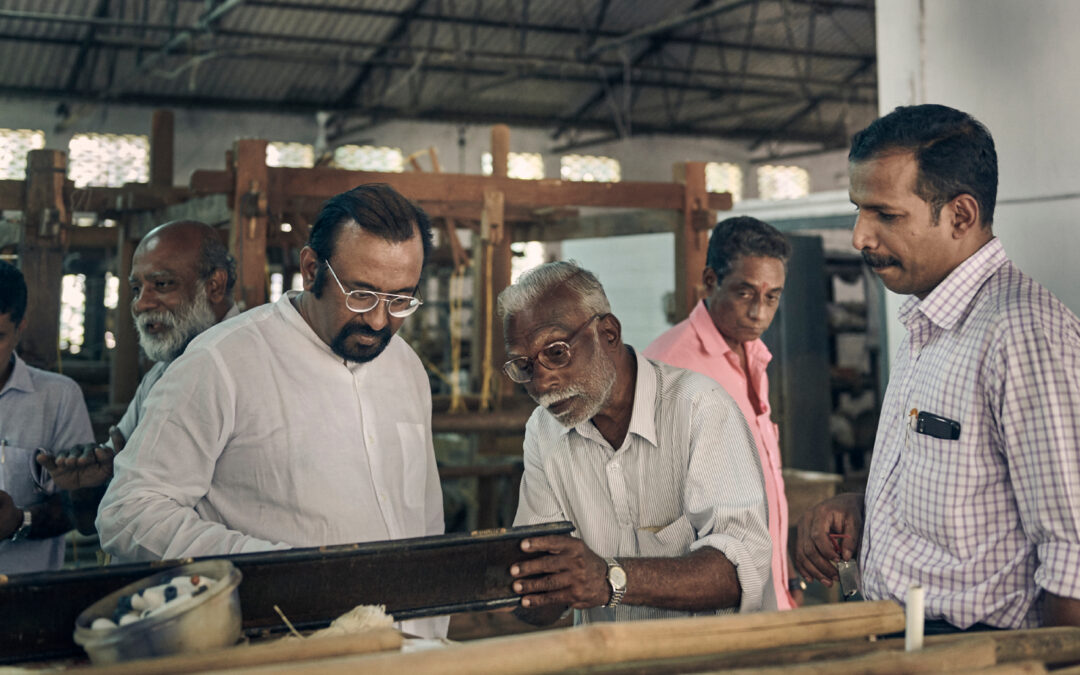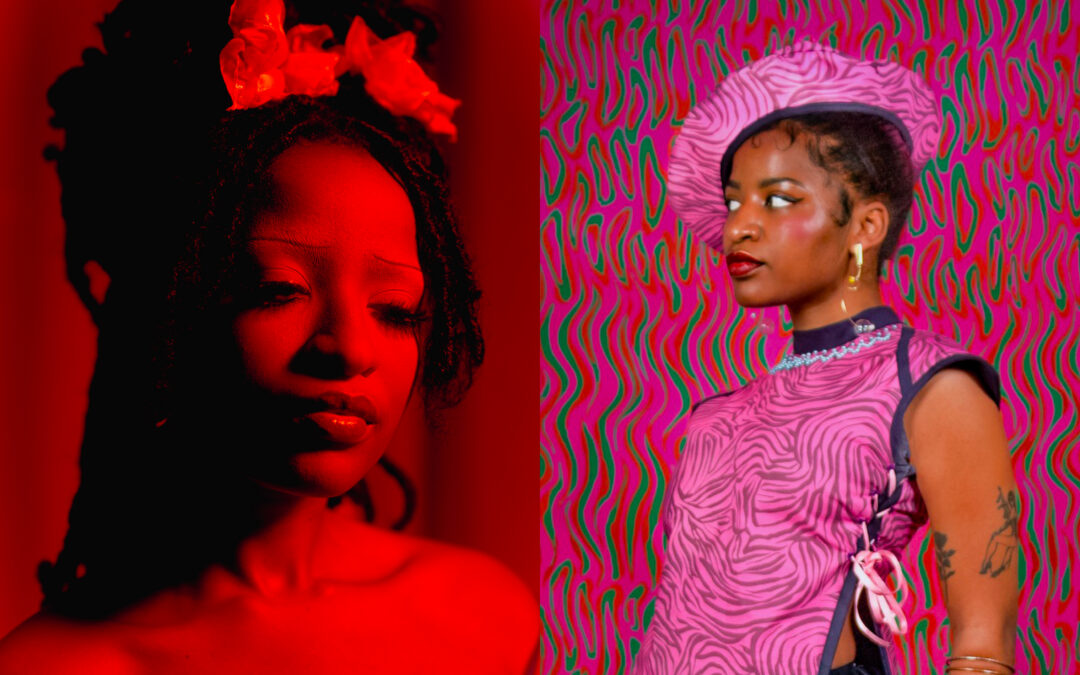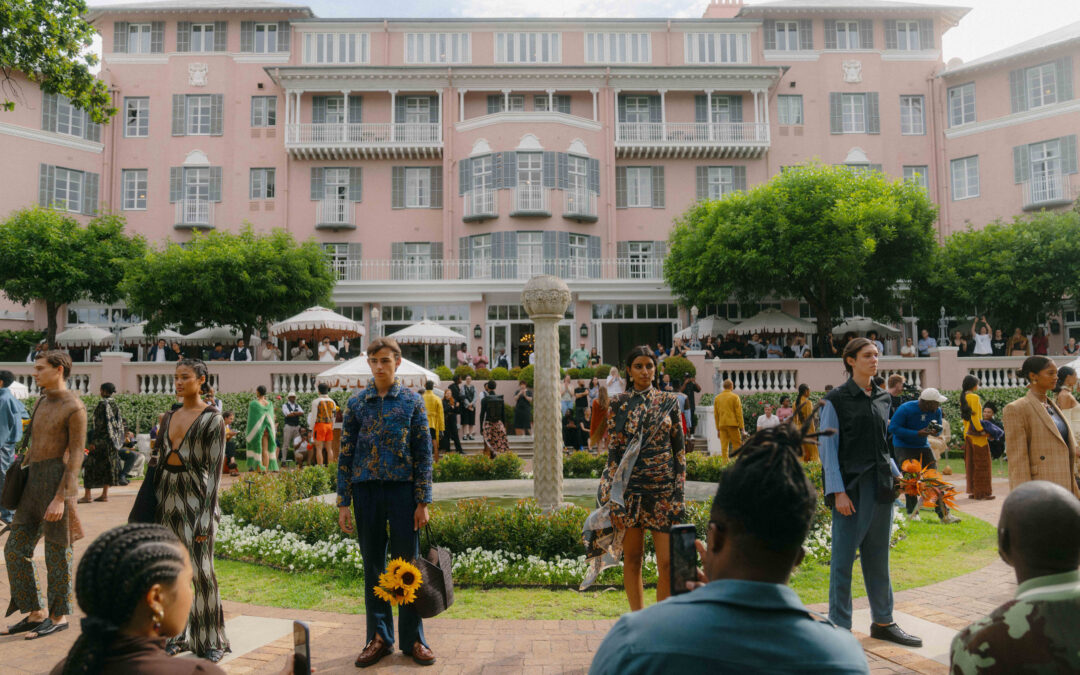Few fabrics have traced an ascent from the uniform of the working class, to stratospheric designer-status, as denim has; while remaining true to its innately rebellious and democratic function. Jeans, the primary form of a denim fabric in fashion, is manifest in a myriad of styles. Up until recently, skinny jeans had us in chokehold. Now, we err more on the side of flared jeans, boyfriend jeans, bootcut, low-rise and so on. Then, there is the ubiquity of denim across a variety of silhouettes and as we will see, the unique ability of denim as an upcycling material is intrinsic to some of South Africa’s most denim-minded designers and fashion thinkers.
Denim’s history can be traced back to the 17th century in Nîmes, France, where a sturdy cotton fabric with a twill weave was first developed. Originally it was known as ‘serge de Nîmes’ and the fabric gained popularity for its durability and versatility. With the onset of the industrial revolution and the growth of a labour work force, this fabric was caught onto by Levi Strauss, a Bavarian immigrant in the United States during the 19th century who, in collaboration with tailor Jacob Davis, created robust work pants for miners. Featuring copper rivets at stress points, these workwear pants became the prototype for what we now know as blue jeans and Levi’s as a brand – well, the rest is literally history.
South Africa has never been a major player in the production of denim. It is an extremely labour-intensive textile to manufacture, with the weaving process demanding precision, as each thread is interlaced to form the characteristic twill pattern. Indigo dyeing is a meticulous task where each thread undergoes multiple dips for the desired colour depth, even when produced on an industrial scale, it requires an immense amount of water and chemicals. Additionally, crafting selvedge edges – the classic, tightly woven bands along the fabric’s edge – the process needs meticulous attention to prevent fraying. It is for these reasons that denim is so durable yet difficult to produce – and why, in the rising movement of sustainable and regenerative-led practices in fashion, denim has become a symbol of longevity. Your denim should last a lifetime – just ask the oldest known pair of jeans discovered last year, dating to 1837 and attributed to Levi’s as the earliest iteration of their workwear pants still in existence.
When thinking about this edition of Interlude (and the column’s two year birthday), denim in the South African context became my point of interest. When a brand decides to use denim (either entirely or woven into their collections), it requires immediate recognition; it conveys to me that this brand is intending to create keepsakes for our fashion landscape, and that the perennial attitude and edge involved in the tacticility of denim, is mirrored in our cultural, sartorial context. South Africans are thrifty and dynamic in our very nature; our love for denim reflects this. Listed below are South African brands and designers for whom denim is synonymous to their work; as always, this is by no means exhaustive – but it is essential.
XZAVIER ZULU
There are few designers and thinkers for whom a single fabric is so sacred. For Xzavier Zulu, denim has been central to his practice; and indeed, his work is an artistic practice. Xzavier’s non-traditional approach to design has seen him pave the way as a vanguard for upcycling. His relationship to denim was crystallised through ‘EVERYTHING IS A SAMPLE’, a collection that he developed in partnership with Levi’s® South Africa. In his conversation with Denim Dudes for the collection’s launch, Xzavier noted that “the collection expresses my love of denim and utilitarian wear by reconstructing pieces from the Levi’s® in-line catalogue as well as thrifted pieces throughout my years. True to my co-operative design ethos, the collection features reimagined crew neck t-shirts, crew neck sweaters, kimonos, tactical vests, culottes shorts, double-breasted suits, durags, berets, face masks and tote bags. The title of the collection is as honest as the pieces themselves and speaks to my wanting to disarm one’s expectation of a finished product but rather appreciating the idea and process of each garment.”
In asking Xzavier the simple question of – why denim? He noted to me that, “denim has continually been the fabric of choice throughout my denim journey as it’s symbolised ‘Access’ – especially into the fashion industry and ever-developing global conversation on sustainabilities place in fashion, as well as ‘Storytelling’ – every thread of fabrication has carried and shared my creative process throughout the years, and given me the opportunity to collaborate with other storytellers to share and amplify each other’s voices.” and that “as a fabric I’ve sourced through mainly thrifting, I hope for those that have followed my journey and will only come to know of it, start TODAY on their own journey – creative or otherwise, wherever it may lead.”
For Xzavier, using denim as a medium for upcycling is a resistance to the status quo of fashion and its commodification of expression, saying that “I think more than anything the ever-developing global conversation on sustainabilities place in fashion is and should be ongoing, reflecting the times, the people it affects and the people who can aid most in its implementation are corporates/brands/organisations and so for the individual who looks to contribute to the conversation through an artistic lens, I would urge those within the fashion industry and beyond to support these creators.” By this, Xzavier calls for understanding that the creator of originality in design and fashion, are the ones we need to continually reference. I feel this way about Xzavier’s work and it is why his words are seminal for my understanding of the power and utility of denim. Lastly, Xzavier notes that, “the pessimist in me does want it to be clear that upcycling is not a commercial practice. It’s a humanitarian one – born from creativity. It’s not to be measured in engagement, posts, like, ROI, etc. it’s to primarily be measured in purposeful and positive intent, the carried message through storytelling as well as the shared commitment by a grown community to walk this journey of progress.”
‘EVERYTHING IS A SAMPLE’ collection, in partnership with Levi’s® South Africa, by Xzavier Zulu
AFROGRUNGE
Anita Hlazo’s brand AFROGRUNGE is her love letter to subculture and counterculture through the experience of Black and People of Colour – as the brand’s epitaphs puts it, ‘creating culture through streetstyle by celebrating POC who venture into aesthetics outside what is generally believed to be the correct ones’. Last year, Anita used denim as a focus for a project in collaboration with Redbat. From denim waistbands slashed and stacked into a new mini skirt, to cropped jackets with frayed edges – Anita is South Africa’s punk-darling of denim. We continue to take notes.
AFROGRUNGE and upcycled denim, photographed by Luxolo Witvoet and styled by Tandekile Mkize, via @afrogrunge IG
SIR ANTHONY JEANS CO.
Anthony Kobane’s ‘Sir Anthony Jeans Co.’ is a tale of craftsmanship and denim, made manifest in his creative path. As a self-described ‘constructionist’, Anthony has used the rebelliousness of denim to advance understanding and potential of the township economy and how high-quality design is critical for building futures – read here for more on this aspect of Sir Anthony Jeans Co. written by Motshabi Hoane. As Anthony notes to me, “denim is our fabric of choice because denim throughout its lifespan it’s the only fabric that can adapt to a person’s character with time. As individuals, denim can express and reflect on your character.”
Sir Anthony Jeans Company, photographed by Andani Makhado
AKJP
AKJP’s in-house label is always a study on the art of intention: ‘sustainably sourced and consciously curated’, their stonewashed, raw denim has seen a variety of iterations – whether as block set or as jeans – the fit is always minimal, clean and as they say (and I agree), ‘essential.’
AKJP’s ‘the Denim Jeans’ in heavyweight, raw denim, via akjpstudio.com
TSHEPO JEANS
Tshepo Mohlahla is ensuring that TSHEPO Jeans ‘is taking its rightful place among the best denim brands in the world’. Tshepo’s label is the breakout star of South Africa’s denim story – with international success and a focus on ensuring denim is understood as a luxury, high-quality product. As Tshepo notes that manufacturing denim at scale and with integrity has been the heart of the label since its inception, saying that “due to the nature of our brand and the quality of our product, we decided to manufacture our jeans in our atelier based in the heart of Johannesburg in Lorentzville Victoria yards. Our tailors – we rather call them artisans – have been highly trained by the Amsterdam Jean School and are constantly training in our atelier to achieve the highest possible quality denim making in South Africa. However, with that said we manufacture some of our ready-to-wear jeans in Mauritius, a small island that is part of Africa and is a member of the SADC region which helps us to grow the African economy through trade from African-sourced cotton, and fabric manufacturing, jean making and to the hands of our amazing customers.”
TSHEPO Jeans, photographed by Bernard Brand
CULT OF ONE
CULT OF ONE is a ‘one-man denim brand, born of obsession’. Specialising in denim focused products, the brand is based in Cape Town and is the result “of over ten years of experience in the South African fashion industry, the brand evolved from an after-hours passion project to a standalone identity. Built on the core value systems of accountability, craft and experience, every piece is designed and made to tell the story of its owner. Purist traditional methods meet obsessive craftsmanship.” CULT OF ONE’s commitment to workmanship is highly articulated throughout their offering; from hand-embossed leather patches, to detailed and illustrated inner-pocket patches – alongside its commitment to true denim – the brand is one of the strongest examples in South Africa of what it means to have focused mastery of a single subject matter, deriving nuances of excellence throughout the process.
CULT OF ONE Raw Denim Suit via @cultofdenim IG
CULT OF ONE workmanship and rivets, via @cultofdenim IG
iFUKU
At 44 Stanley in Joburg exists one of the coolest denim stores I have ever walked into – iFUKU. Owner Rodney Mudzengerere is a self-described ‘denim junkie and boot hunter’; and his curatorial abilities are legendary in Joburg’s creative scene. I am a sucker for brick-and-mortar, and iFUKU is a crowning jewel in the independent shop landscape of South Africa, offering a variety of vintage and new pieces.
IFUKU – Joburg’s best vintage denim store, via ifuku.co.za
FLOYD AVENUE
Floyd Manotoana has always had denim at the forefront of his work. Debuting on the scene as the winner of SA Fashion Week Scouting Menswear in 2016, Floyd’s label ‘Floyd Avenue’ has shown locally and at Berlin Fashion Week and in Milan at The White Show. Floyd Avenue “We use cultural references to inspire androgynous pieces that rise above trends, impeccably tailored for unadulterated comfort and exquisite designs.”
‘In Funk We Trust’ by Floyd Avenue, via floydavenue.co

